Episode 14. Christmas Potpourri II: Hard/Try
SOCIAL SHARE
SUBSCRIPTION PLATFORM
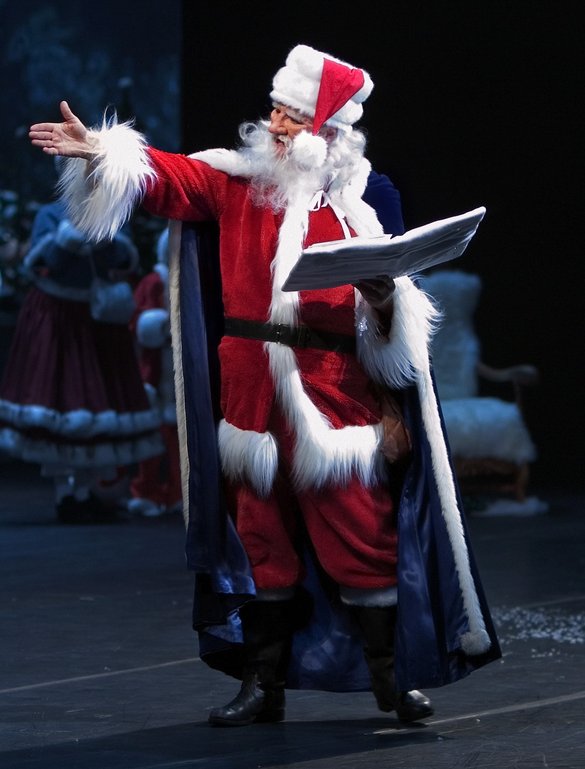
Another week of Christmas music! The first part of the episode is a continuation of last week’s All-Tenor Extravaganza. We hear from Farrold Stephens, Luther Saxon, Roland Hayes, James Melton, Brian Sullivan, Richard Crooks, Raoul Jobin, Jussi Björling, Richard Verreau, Fritz Wunderlich (with an assist from Hermann Prey), Rudolf Schock, René Kollo, John McCormack, Peter Schreier, and Mel Tormé (with an assist from Judy herself!) And for those who have ambivalent feelings about this holiday, the second half of the program foregrounds six of my most favoritest Depressing Christmas Pop Songs, sung by Eileen Farrell, Rita Gardner, Joni Mitchell, Edith Piaf, Judy Garland and (in memory of the recently deceased Marie Fredriksson), Roxette. A line from Judy’s song “After the Holidays” (by John Meyer) provides the inspiration to the episode title: “I know it’s hard, but try.”
RECORDINGS HEARD IN THIS EPISODE
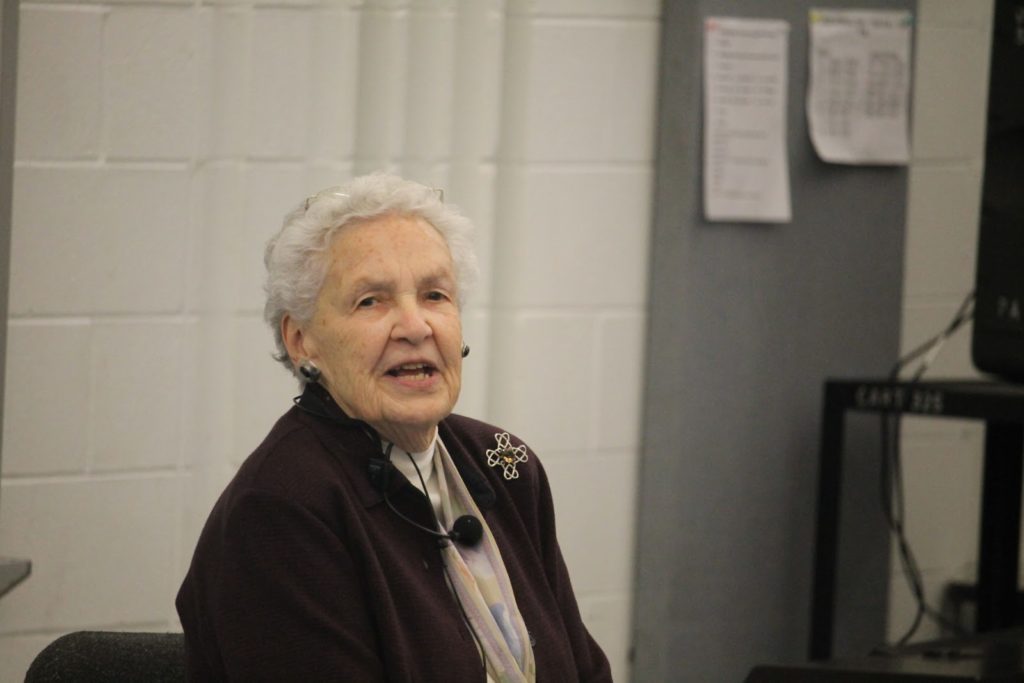
Traditional American Spiritual, arr. Alice Parker: Mary Had a Baby. Farrold Stephens, tenor (I think!); Robert Shaw conducting the Robert Shaw Chorale. From Christmas Hymns and Carols, Volume 2, RCA Red Seal Records, LM-1711 (1957). I explain on the podcast how difficult it was to identify this tenor soloist. I hope I have identified him correctly! He also appeared on the Columbia Records issue of Lukas Foss’s A Parable of Death. Once I am able to get my hands on this LP, I will be able to confirm for certain that his is the voice that we hear on this wonderful recording. (Needless to say, I was unable to find a photo online of this rather obscure singer!)
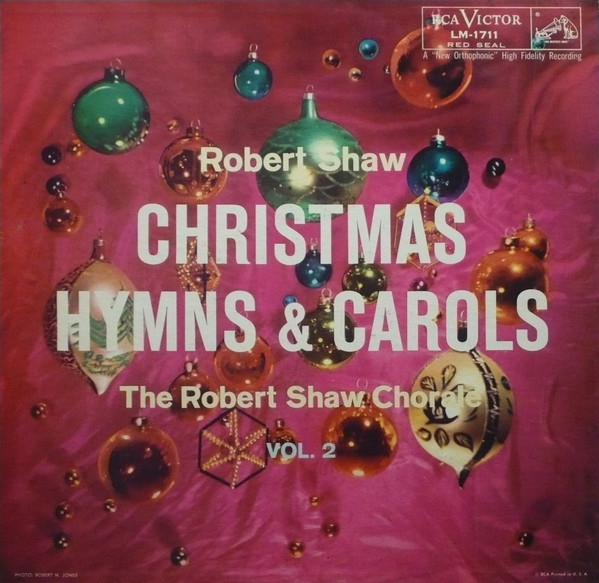
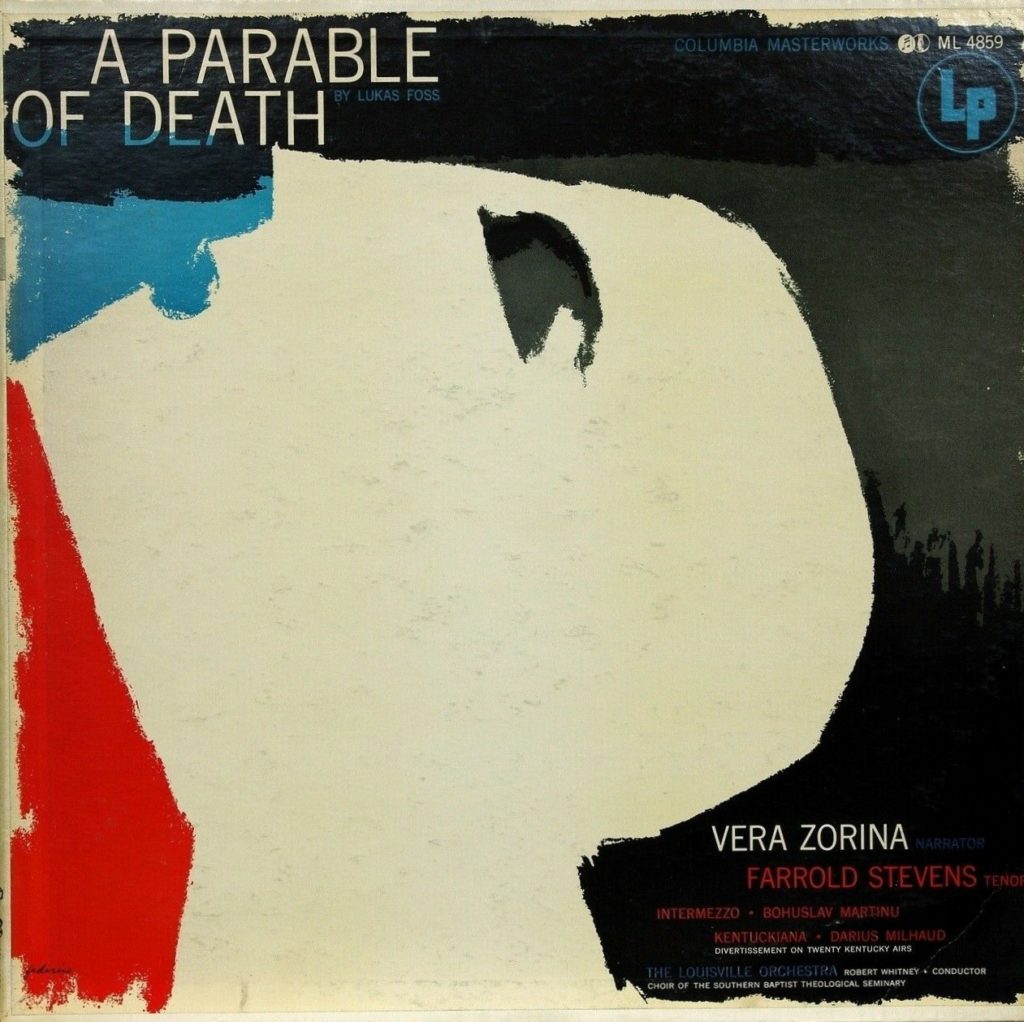
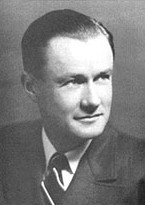
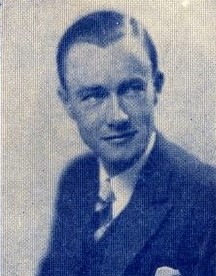
Robert MacGimsey: Sweet Little Jesus Boy. Luther Saxon, tenor; Leonard De Paur conducting the Leonard De Paur Chorus. From Calypso Christmas, Columbia Records CL 923 (1956). As I relate on the podcast, Robert MacGimsey, a white man, is the composer of this spiritual-like perennial favorite. This article tells the story of the composer’s inspiration in composing the song. Luther Saxon was plucked from the Hall Johnson Choir to appear as Joe in the original production of Carmen Jones in 1943. He died in 2017 at the age of 101. You can see him as an elderly man in this interview for a local television show speaking about his career, and particularly of creating the role of Joe. Please take note of Muriel Smith in the above photo; she was another extraordinary singer whom I hope to feature on an upcoming episode. Finally, this is a wonderful program from the WNYC Archives featuring Leonard De Paur discussing his career. Unfortunately the musical selections he played on that broadcast are not included.
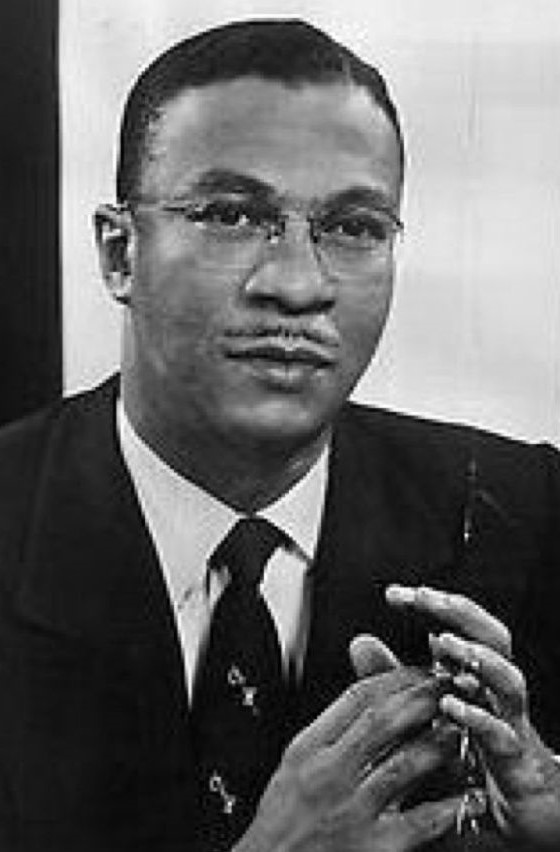

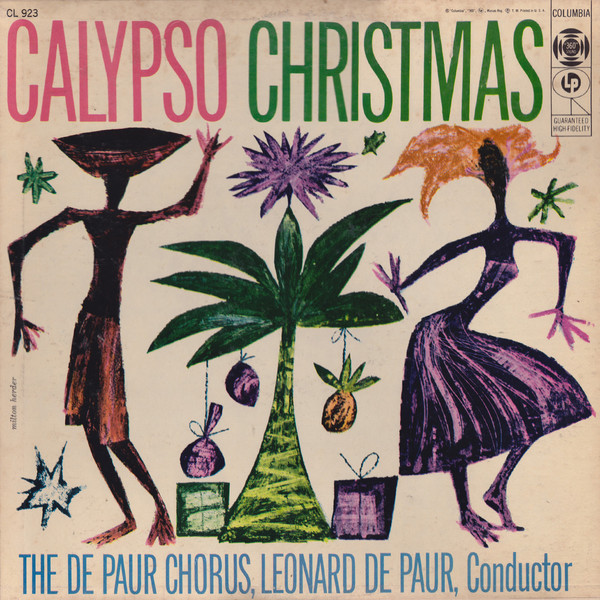
Traditional American Spiritual, arr. Roland Hayes: Little Boy. Roland Hayes, tenor. Roland Hayes is particularly known for his performance of this spiritual (and he himself created this performing version). This is my favorite of his versions: he is more vividly characterized and in even freer voice than in any of other versions I’ve heard. I don’t know the particulars of this performance; judging by the vibrant acoustic, it might be a live performance. He seems to be somewhat younger here than in the Vanguard Records discs he made as he was approaching 70.
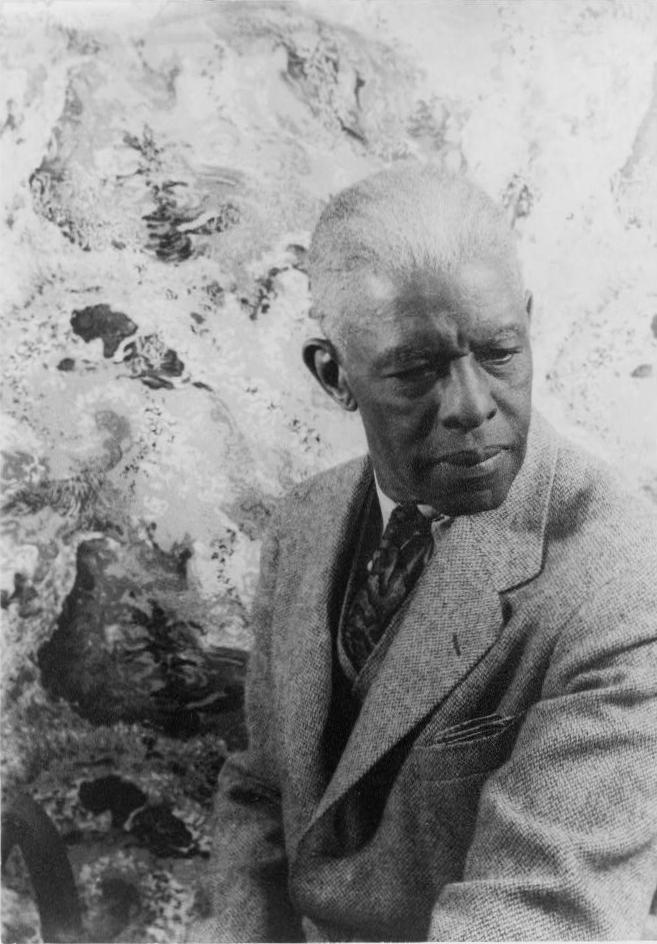
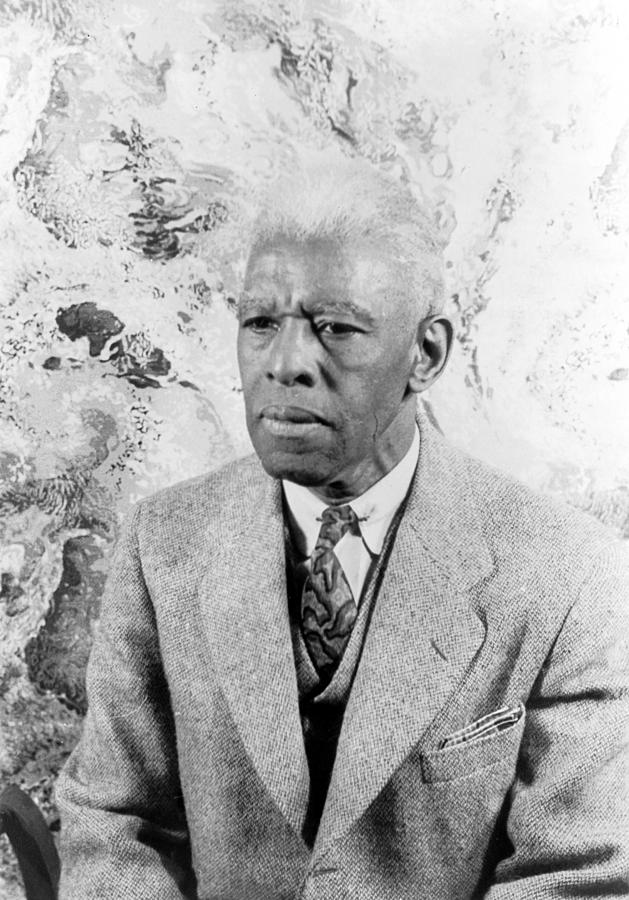
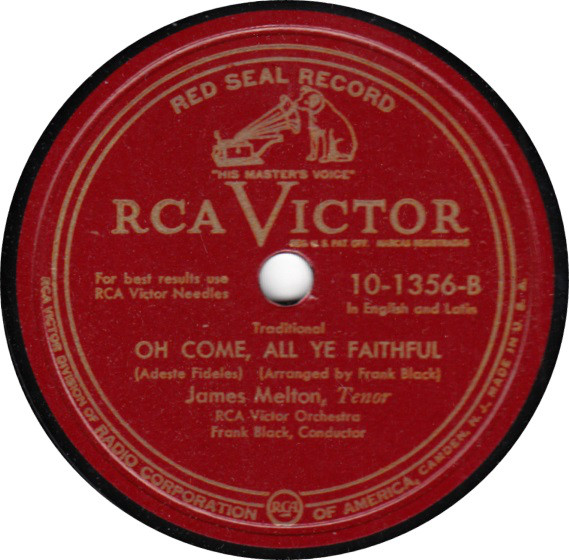
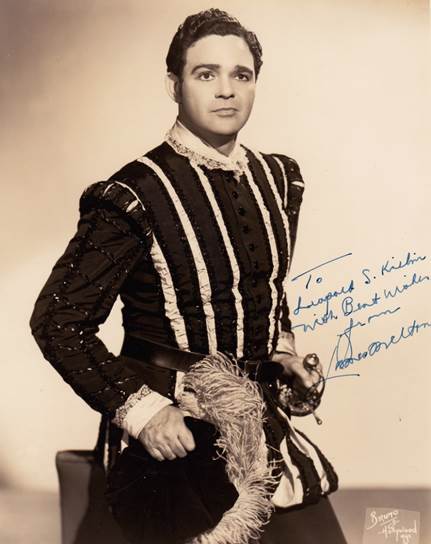
Anonymous (collected John Francis Wade), Frederick Oakeley (arr. Frank Black): O Come, All Ye Faithful. James Melton, tenor; Frank Black conducting the RCA Orchestra. RCA Victor 10-1356 (ca. 1948). As I mentioned on the podcast, the careers of both James Melton and Brian Sullivan encompassed success across a wide musical spectrum while ending in tragedy, despair and early death. Since we get into the depressing aspects of Christmas music later in the episode, let’s for the moment focus on the lovely recordings that are presented here. Melton began as a radio singer and eventually starred on the Metropolitan Opera stage, where he was frequently paired with Licia Albanese, who was a great admirer.
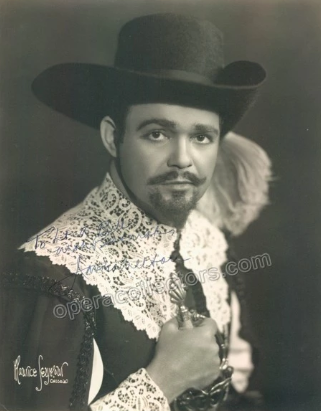
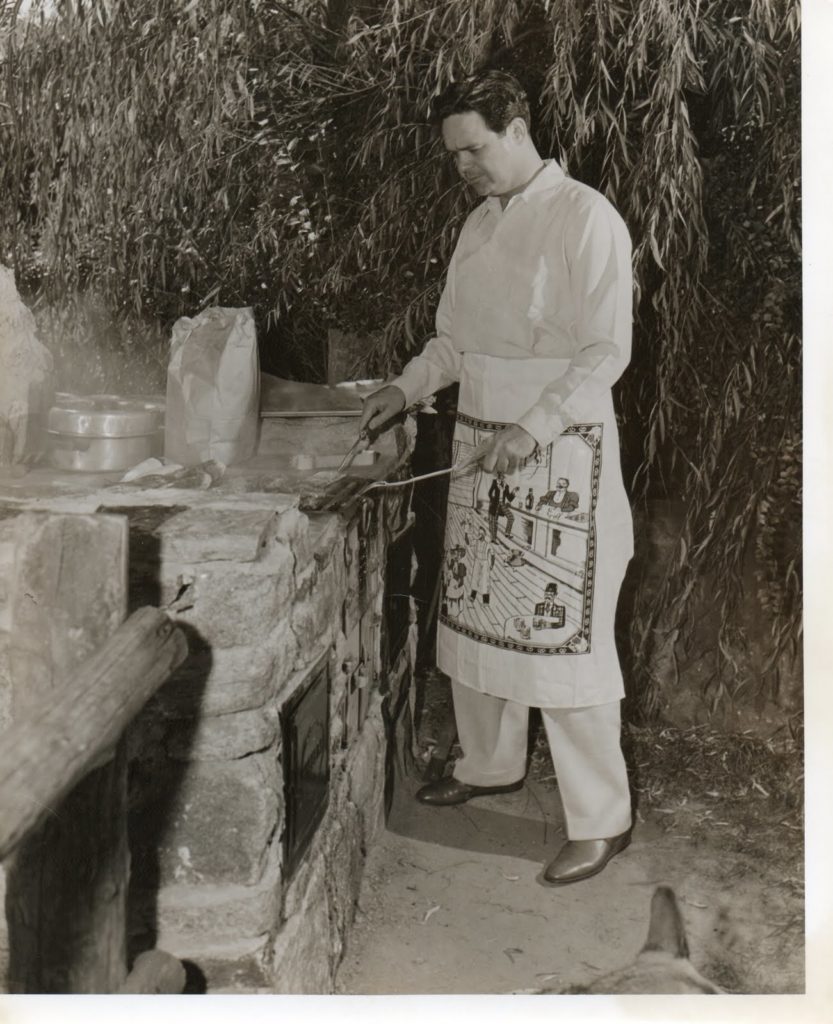
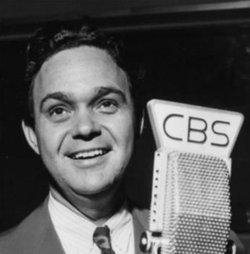
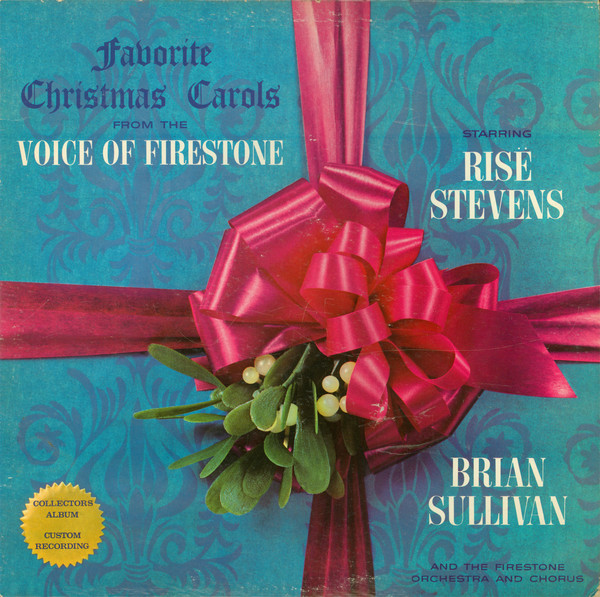
Richard Storrs Willis, Edmund Sears: It Came Upon the Midnight Clear. Brian Sullivan, tenor; John Lesko conducting The Firestone Orchestra and Chorus. From the album pictured above. One of Brian Sullivan’s earliest appearances was on Broadway was as Sam Kaplan in the first performances of Kurt Weill and Langston Hughes’s Street Scene (you can hear him on the original cast recording singing, among other things, Lonely House). I am deeply fond of the voice and artistry of Brian Sullivan. He sang nearly 200 performances at the Met in repertoire ranging from Pinkerton to Lohengrin, Ferrando to Grigory the Pretender in Boris Godunov, Peter Grimes to Matteo in Arabella, Admète in Alceste (opposite both Kirsten Flagstad and Eileen Farrell) to Parsifal. A career not at all dissimilar to John Alexander’s, whose praises I was singing a few episodes ago. His life ended in 1969 at the age of 51 in circumstances that looked suspiciously like suicide. Here he is on one of those over-produced and sappy Christmas records that Firestone Tires put out in the early sixties. His artistry shines through the choir- and bell-drenched arrangement. (I had thought that I might do full episodes on these Firestone releases, but on relistening to them, I realized how mostly dreadful they are!) Here is Sullivan pictured with Anne Jeffreys, his co-star in Street Scene in 1947. Unlike Sullivan, Anne Jeffreys lived a long life, dying in September 2017 at the age of 94.
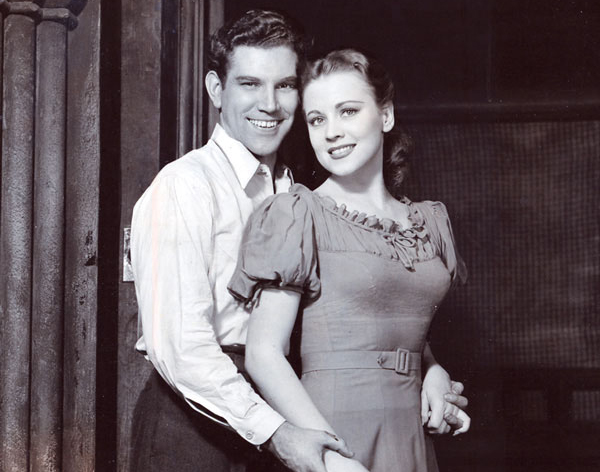
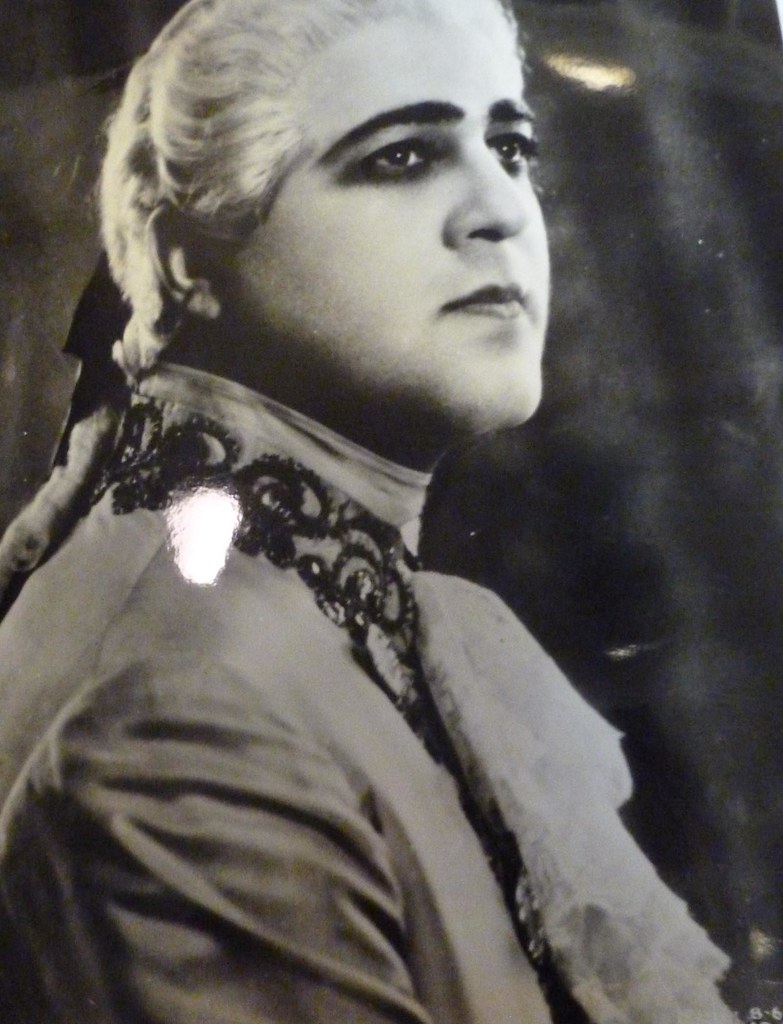
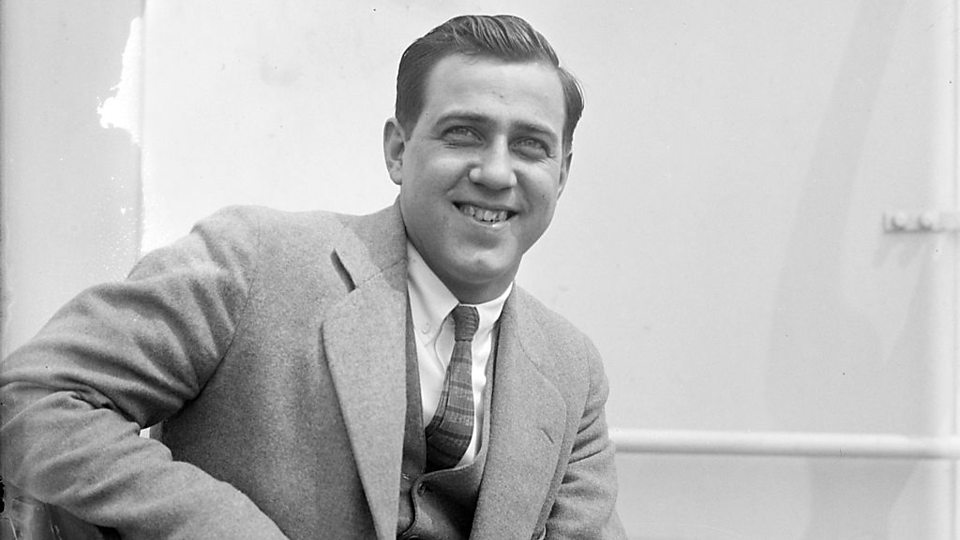
but for a less formal occasion
(and with less makeup).
César Franck: Panis angelicus. Richard Crooks, tenor; Charles O’Connell conducting the Victor Symphony Orchestra (RCA Victor 11-8490-A [1942]). Richard Crooks possessed one of the most beautiful lyric tenor voices in the history of recorded sound. He was a very popular radio star (in fact, from 1928 to 1945, the host of the popular radio series The Voice of Firestone!) as well as (like Melton and Sullivan in their day) one of the leading tenors of the Metropolitan Opera. Needless to say, with his timbre, openness, and sincerity, he was a masterful purveyor of the same “Irish tenor” repertoire as John McCormack (see below). His recording of Franck’s Panis angelicus makes me melt.
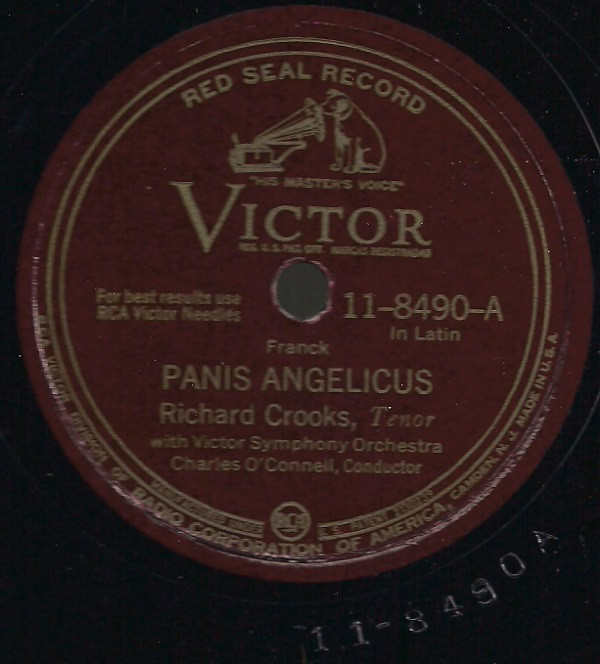
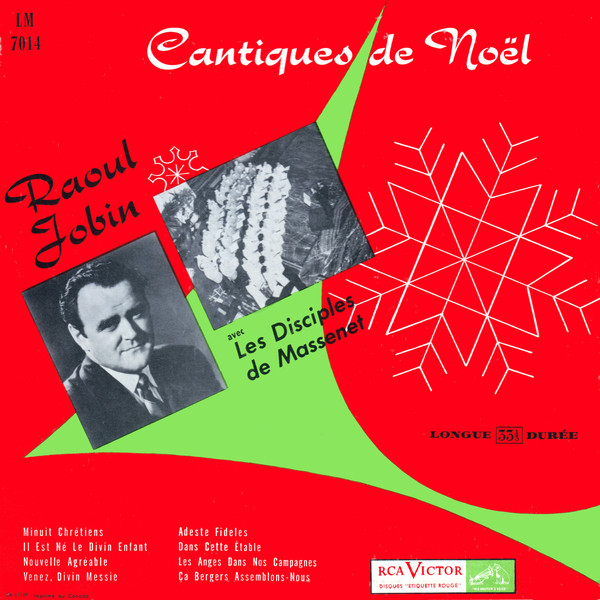
Adolphe Adam: Minuit, chrétiens [Cantique de Noël]. Raoul Jobin, tenor; Charles Goulet conducting Les Disciples de Massenet; Roland Roy, organ. From Cantiques de Noël (RCA Victor [Canada] LM 7014, 1948). As I mention on the podcast, Raoul Jobin’s was one of the first tenor voices I knew well in my earliest exposure to opera. I checked out his record of Les contes d’Hoffmann (the 1948 Opéra-Comique EMI recording which also featured Renée Doria, Géori-Boué, Vina Bovy, Charles Cambon, André Vessieres, André Pernet, Charles Soix, Louis Musy, Fanely Révoil, and Bourvil, conducted by the great André Cluytens. The Canadian tenor resembles (to my ear) a slightly lower-tier Georges Thill (which is not meant to slight Jobin at all!): he has the brightness and depth and thrust (as well as the point-on French style) required for the role of Hoffmann and other of the key French tenor roles (Don José, Roméo, and others). His recording of Adam’s Cantique de Noël, so beloved by me as well as many others), is one to cherish, in spite of the rather dull-sounding organ and choir that accompany him in this recording, first released in 1948).
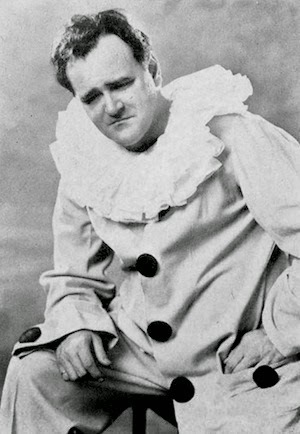
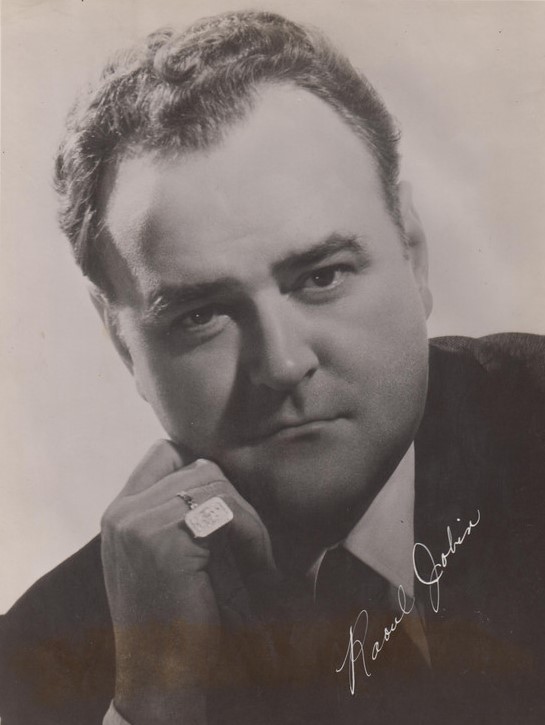
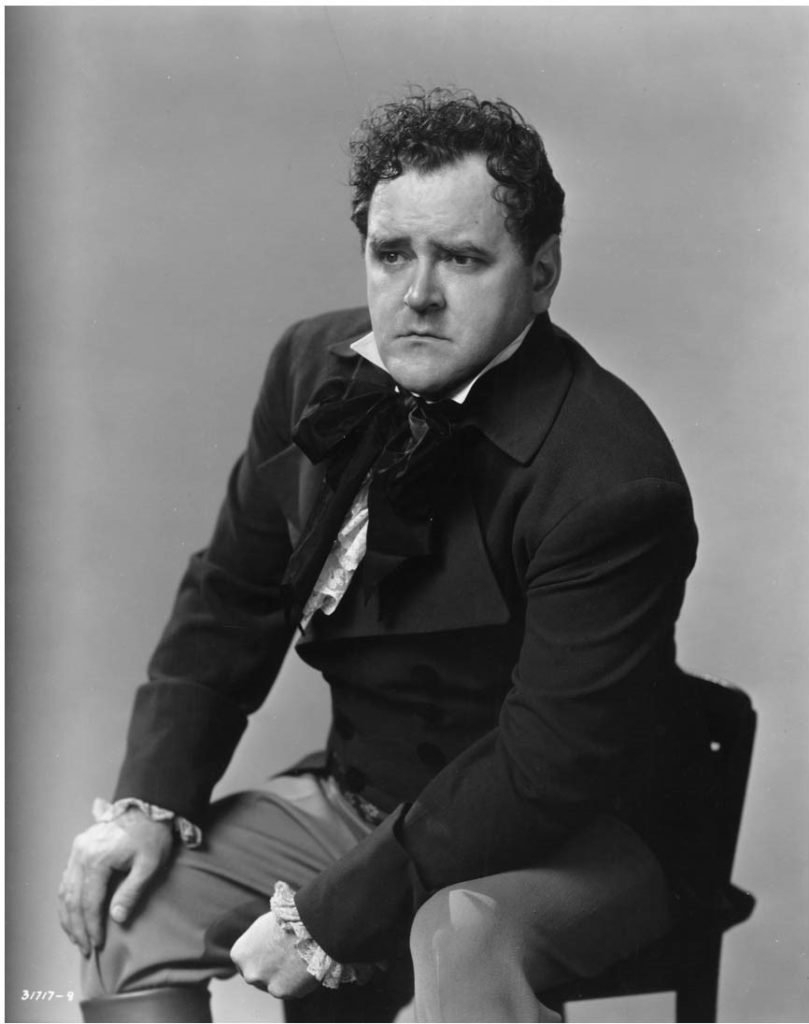
Someone cheer this guy up!
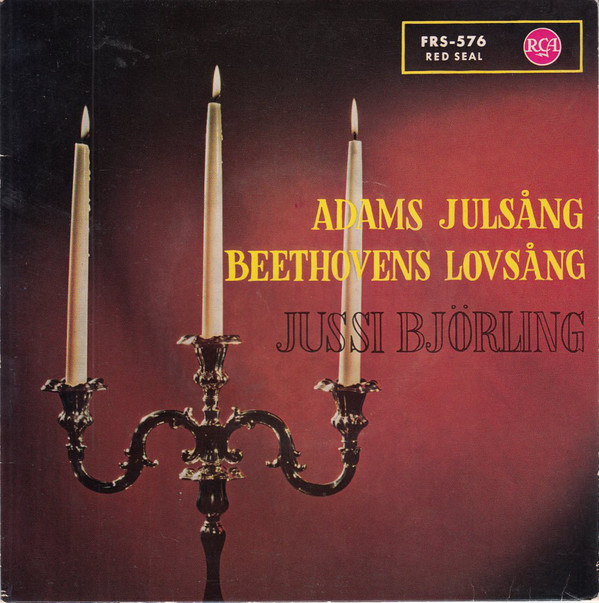
Adolphe Adam: O helga natt. Jussi Björling, tenor; Nils Grevillius, conductor. Recorded 8 February 1959. RCA Victor (Sweden) FRS-576 (1959). For many persons, this is the supreme recording of the Cantique de Noël, here sung in Swedish as O helga natt. Even at the end of his tragically short life, Björling brings a matchless tonal quality and enormous ease on his high notes. Never a great linguist, I think Jussi is always at his best when singing in his native language. And as my guest Nicholas Tamagna mentioned in our the second part of our interview (Episode 3 of Countermelody), he has endless legato and a deep commitment to the integrity and harmony of each and every vowel (I use the term “vowel harmony” to refer to the integrity of each vowel while still maintaining the voice’s balance and tonal quality: to my ear, Björling was the master of vocal harmony.)
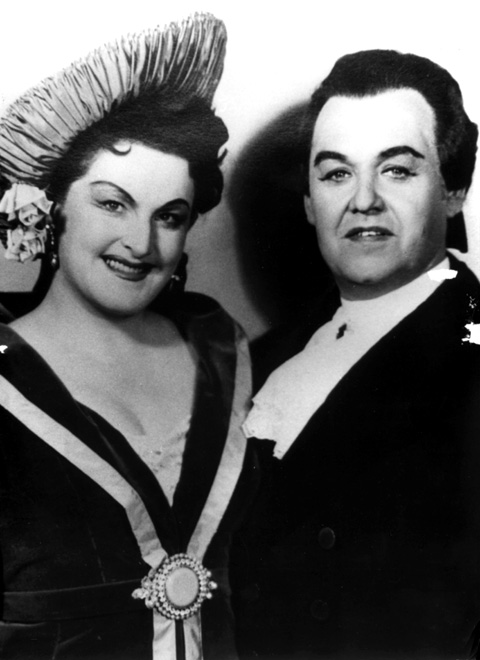
as Tosca and Cavaradossi
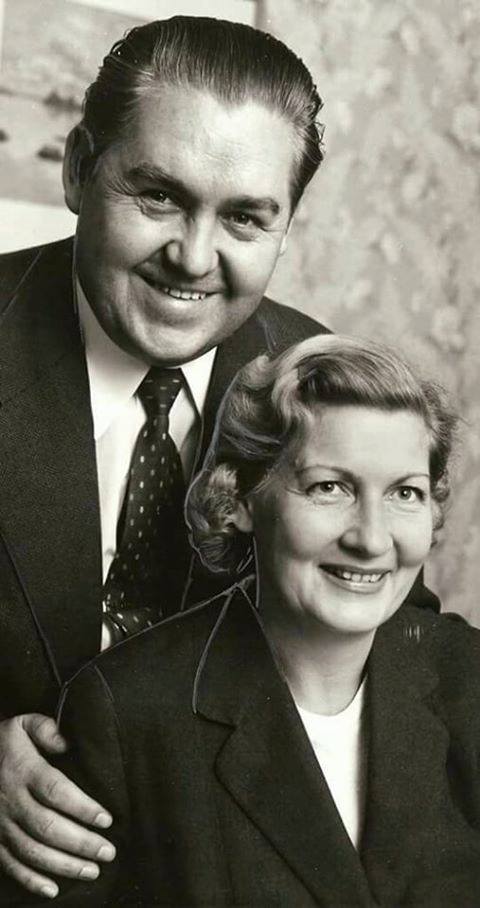
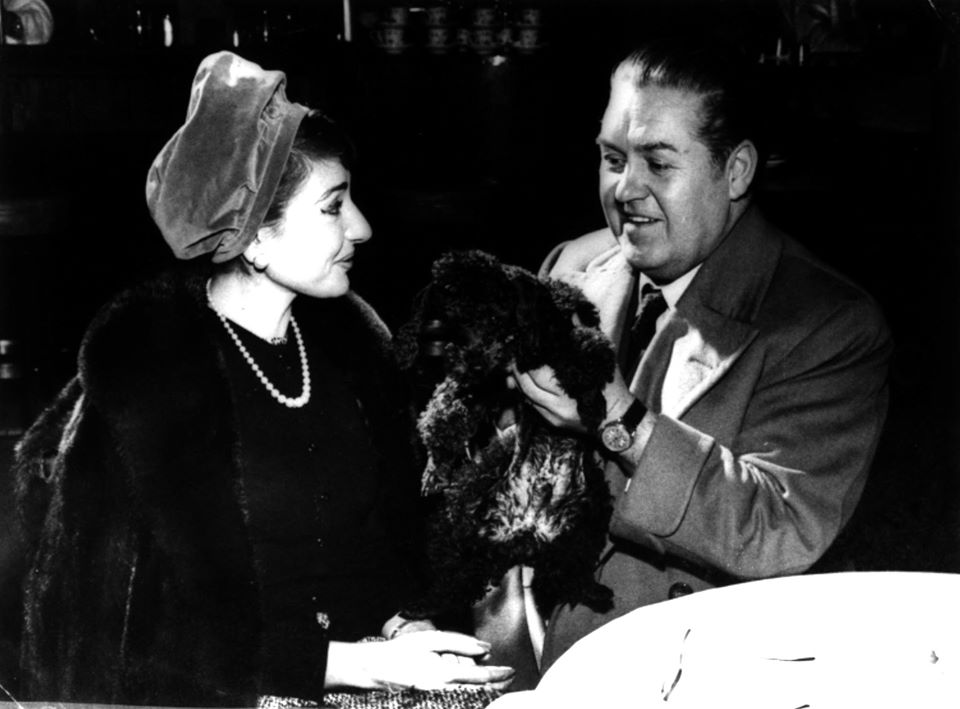
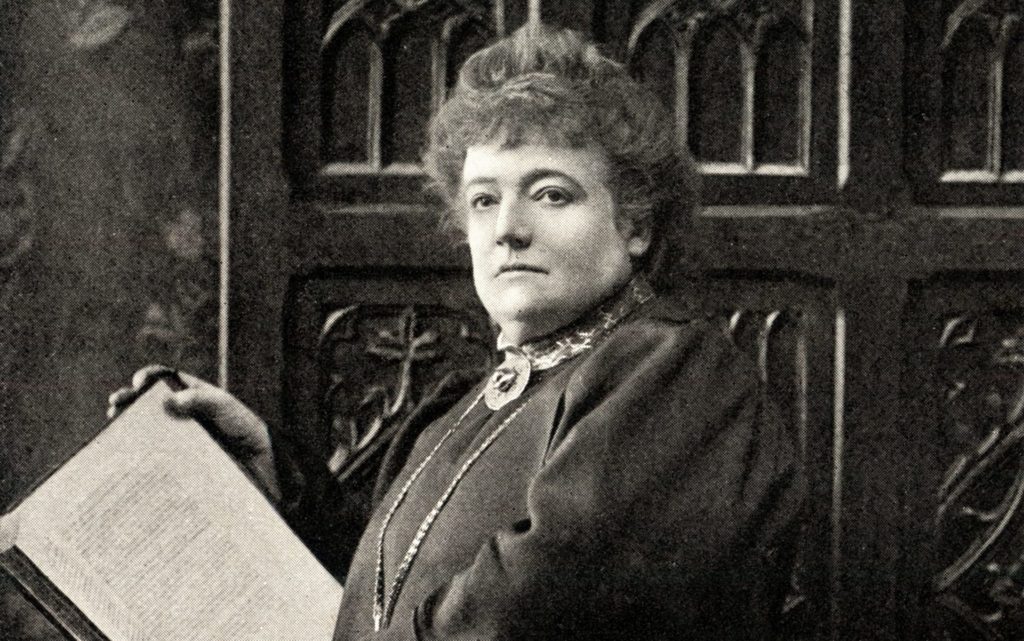
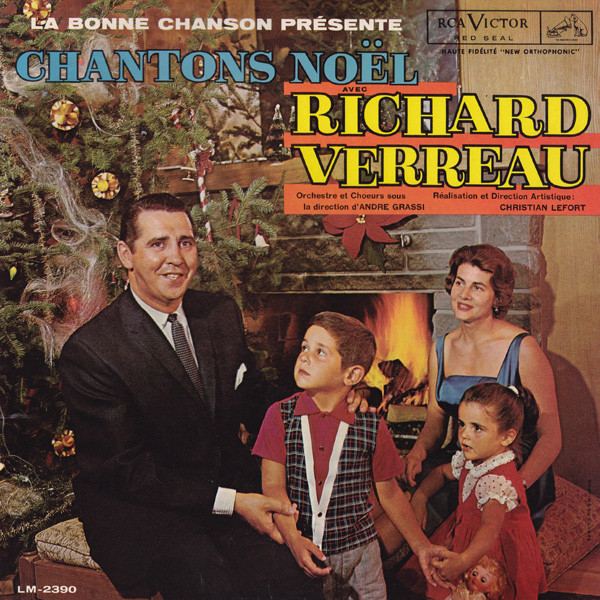
Augusta Holmès: Noël [Trois anges sont venus du ciel]. Richard Verreau, tenor; André Grassi conducting Les chœurs de la Bonne Chanson with orchestra. From Chantons Noël avec Richard Verreau (RCA Victor [Canada] LM/ LSC-2390 [1959]). This might be, for me, my favorite discovery of this holiday season. I had heard the name Richard Verreau before, but I don’t think I’d ever heard his voice before. It has a ring and clarity, and an ease in the high register, that makes him one of the finest lyric tenors I have ever heard. And this song, a lasting Christmas favorite in French-speaking countries and regions, is one of several holiday numbers written by the august Augusta Holmès (1847-1903), an Irish-French composer whose other work is ripe for rediscovery.
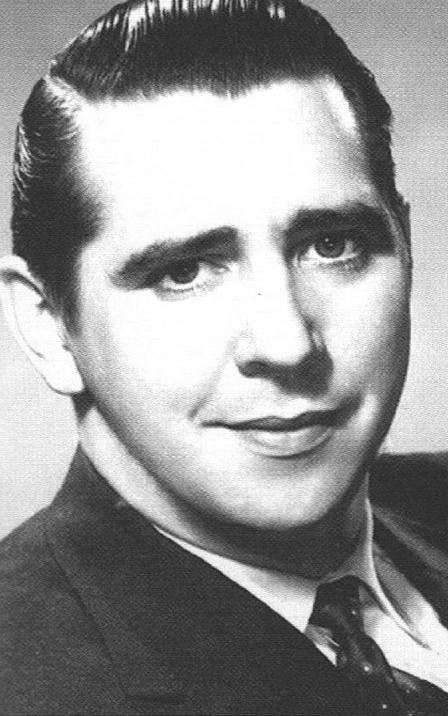
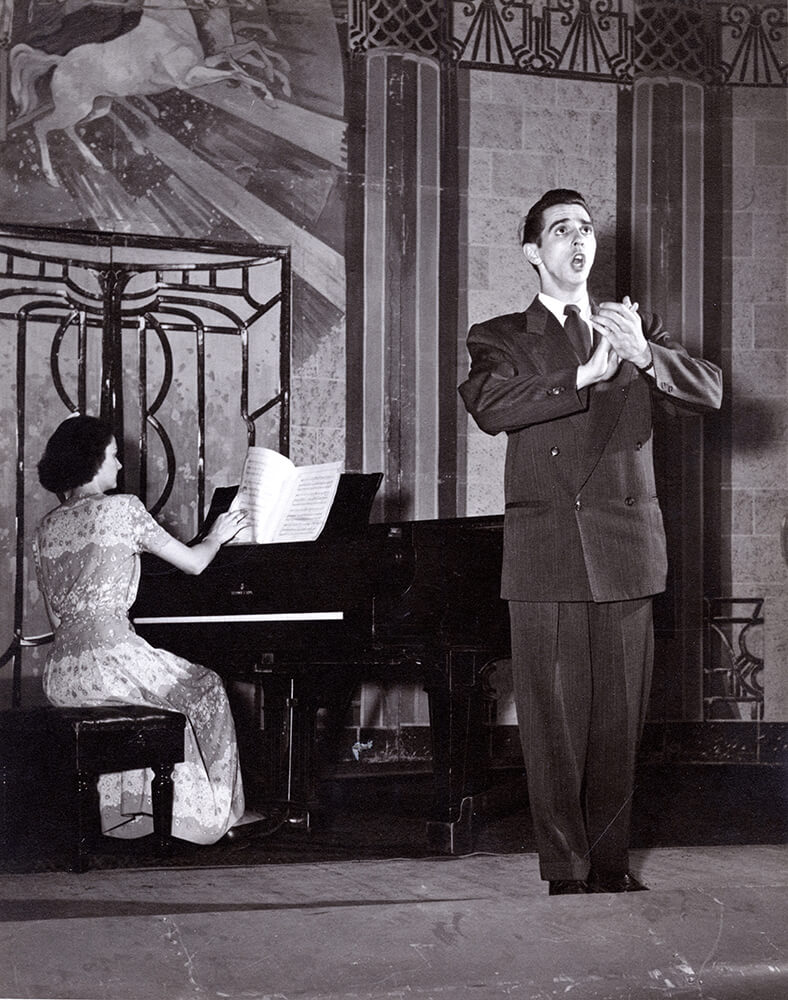
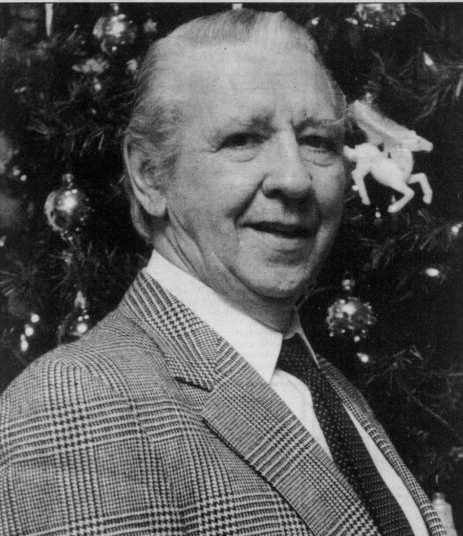
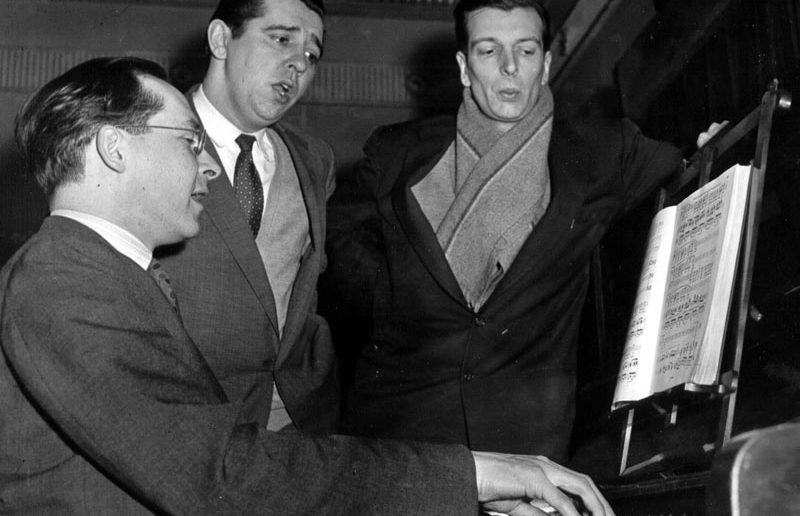
and the late Joseph Rouleau preparing Boheme, Covent Garden 1957.
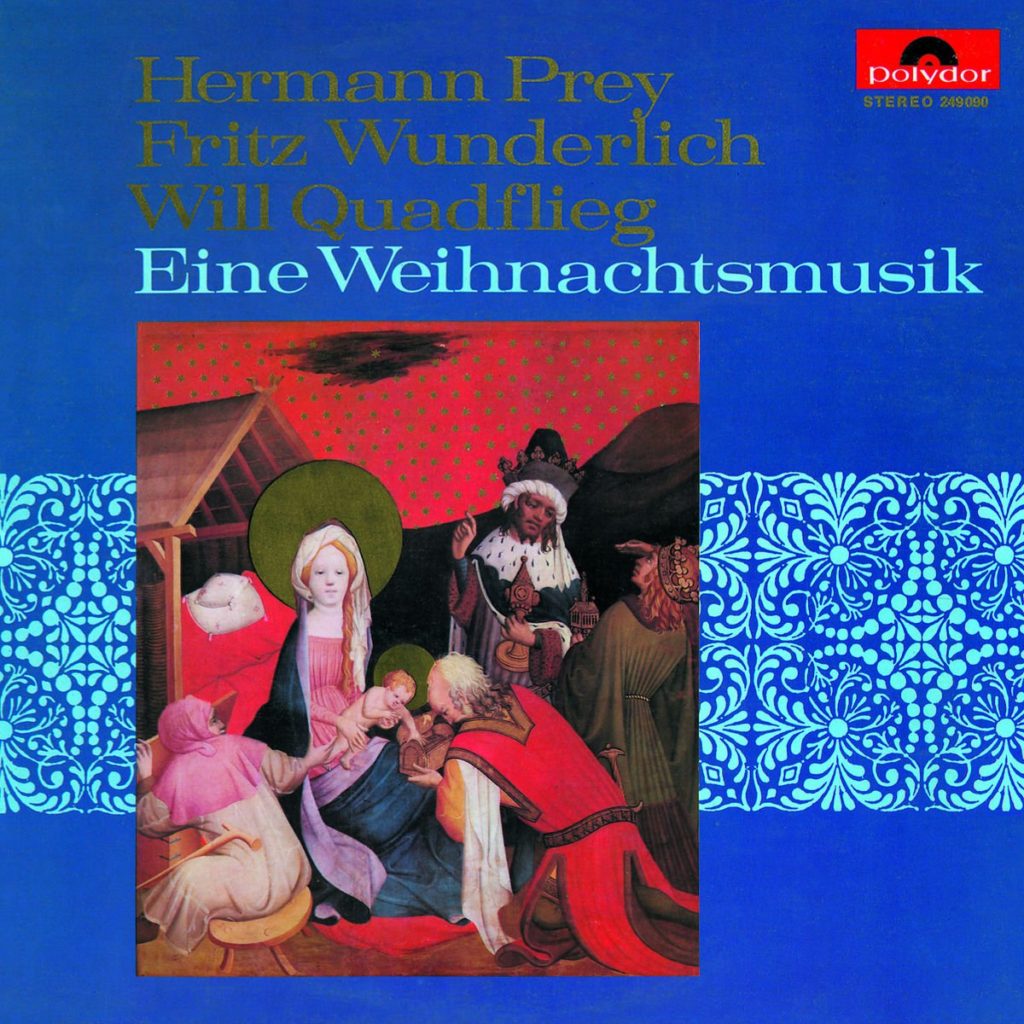
Anonymous, collected August von Haxthausen and Dietrich Bocholtz-Asseburg: Maria durch ein Dornwald ging. Fritz Wunderlich, tenor; Hermann Prey, baritone; Fritz Neumeyer leads an instrumental ensemble. First issued on Eine Weihnachtsmusik on Polydor 249 090 (1966). This recording was made in the summer of 1966, apparently in the midst of a sweltering German summer. Mere months later, the beloved Fritz Wunderlich was dead in a tragic accident the circumstances of which were never completely explained. In an interview in observance of her recent 90th birthday celebration, Christa Ludwig had some pretty harsh words for Fritz Wunderlich as a person, but both of these artists (the interview is now behind a firewall; sorry!), as well as Hermann Prey, who is heard in duet with Wunderlich in this recording, contributed immeasurably to German-language bel canto style in the second half of the twentieth century.
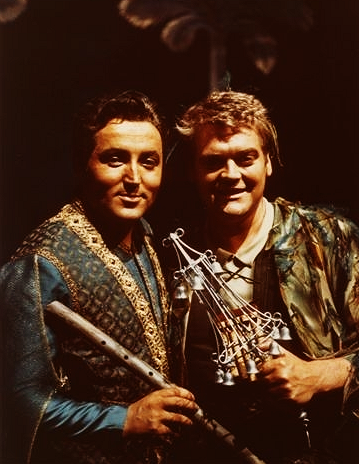
tenor and baritone, flute and glockenspiel.
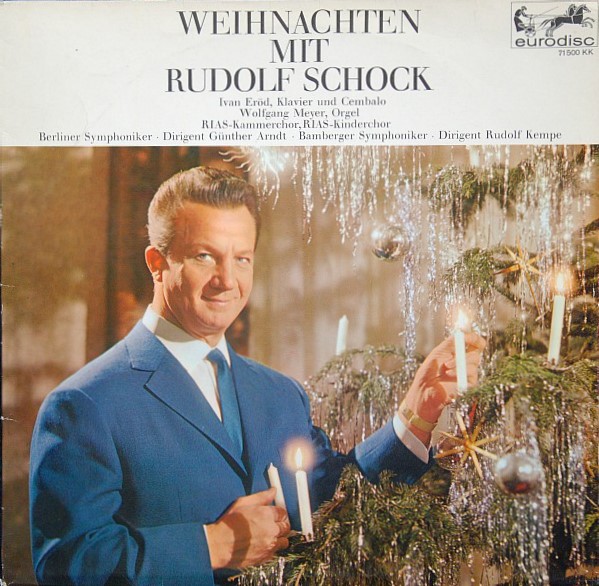
Eduard Ebel: Leise rieselt der Schnee. Rudolf Schock, tenor; Günther Arndt, conductor; the Berliner Symphoniker, RIAS-Kammerchor, and the RIAS-Kinderchor. From Weihnachten mit Rudolf Schock (Eurodisc S 71 501 KK). As I mention on the podcast, Rudolf Schock gained enormous popularity in German-speaking countries based on his television appearances, in effect the tenor version of Anneliese Rothenberger. Though he is by no means my favorite tenor, Schock was not only a purveyor of schlock (known in Deutschland as schlag!), but was also a valued Lieder and opera singer. It’s a slightly beefy backed by a solid technique, the sound of which is, to my ear, quintessentially Deutsch.
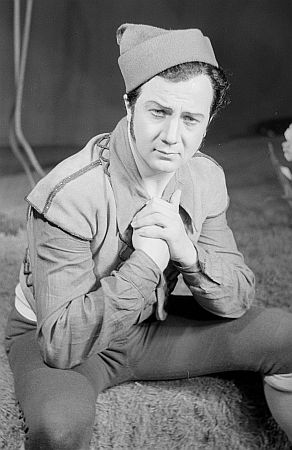
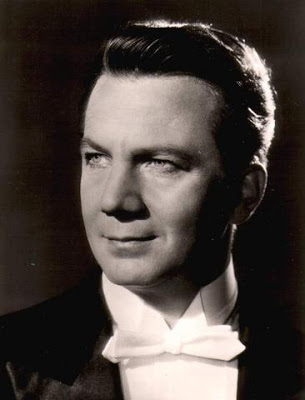
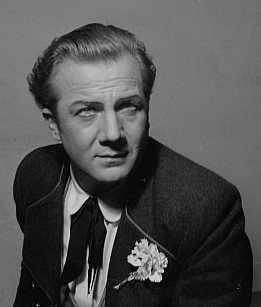
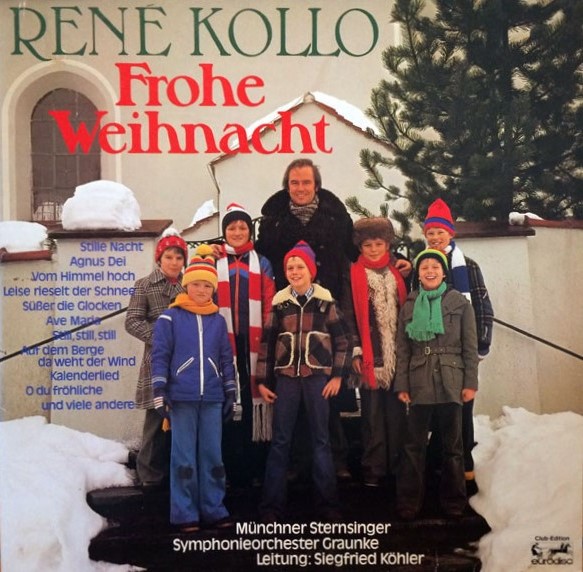
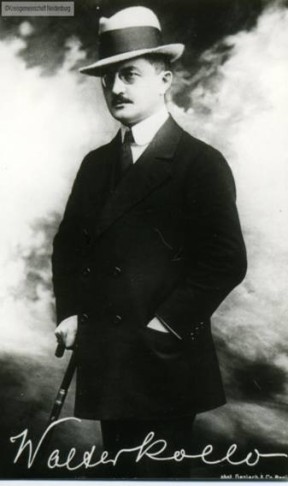
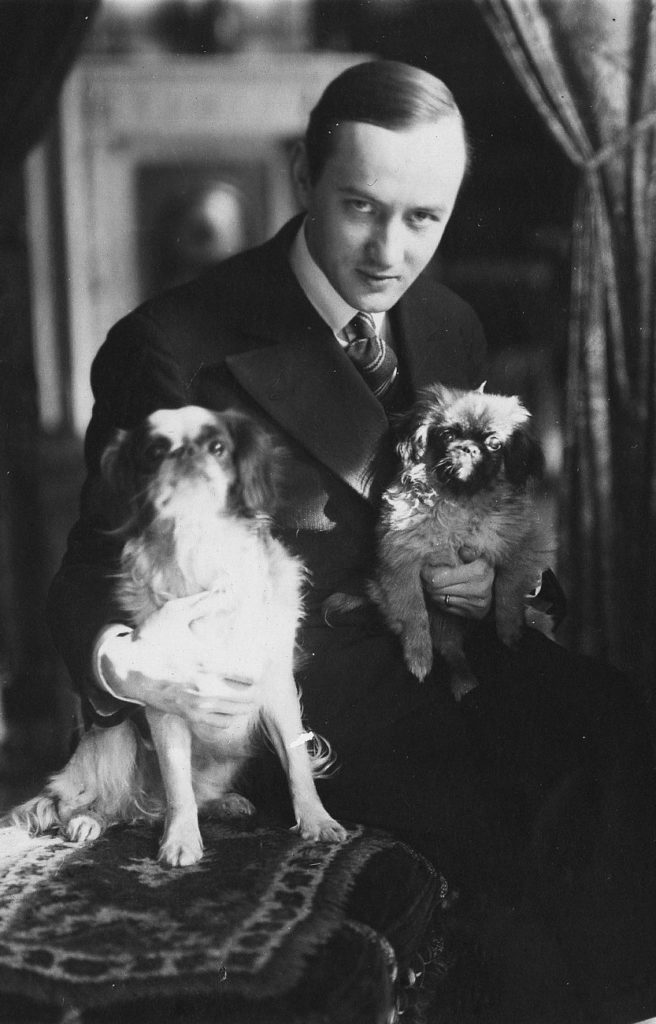
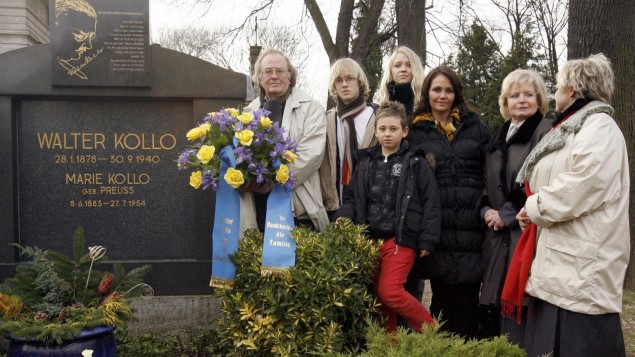
Austrian Carol, collected Vinzenz Maria Süß: Still, still, still. René Kollo, tenor. Siegfried Köhler, conductor; the Symphonieorchester Graunke and the Münchner Sternsinger. From Frohe Weihnacht (Eurodisc 25 831 KK, 1978). René Kollo comes from a family of musicians dating back two generations. His grandfather Walter (1878-1940) was a composer of the Berlin-style of operetta and revue; his father Willi (1904-1988) was also a composer, particularly of film Schlager and cabaret revues. René’s sister Marguerite is an important agent and opera administrator. René Kollo began his career as a pop singer in the Ricky Nelson style (his first hit in fact was a German version of Ricky’s Hello, Mary Lou); he participated in the Eurovision Song Contest in 1964 and 1965, and in the latter year made his operatic debut as a tenor. He developed into a Heldentenor of the lightest type, but sang the heaviest repertoire from Siegfried to Tristan to Florestan to Bacchus in houses from Bayreuth to the Met with the most important conductors of the period. In the late 1990s he served as the unsuccessful Intendant of the Metropol-Theater: the theater closed in 1997 because of bankruptcy. In my opinion, he is heard at his best in music did not unduly tax his lyric instrument, such as this recording of Still, still, still.
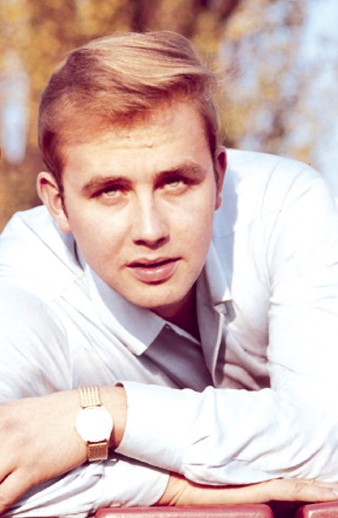
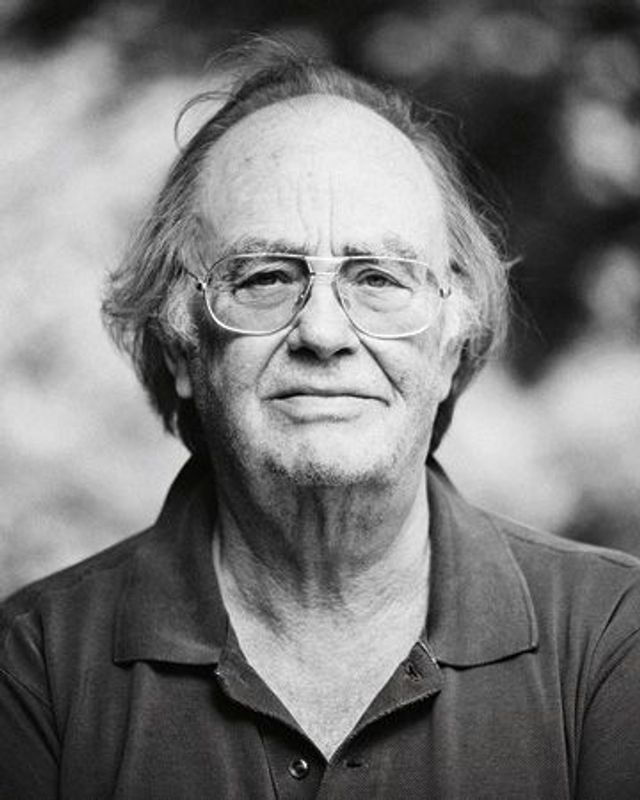
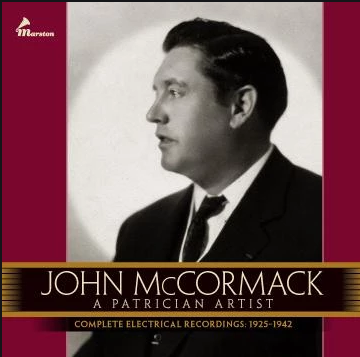
on the incomparable Marston Records label.
Hugo Wolf: Schlafendes Jesuskind (Mörike-Lieder). John McCormack, tenor; Edwin Schneider, piano. Recorded 3 December 1930. (HMV DA 1170). As I mentioned in the podcast, John McCormack was an enormously popular recording artist, most familiar to his myriad admirers for his sentimental “Irish tenor” repertoire. But his musical tastes and aspirations ran deeper: his recordings of Hugo Wolf in particular are remarkably skillful and perceptive. Ward Marston has recently released two mammoth McCormack boxes on his irreplaceable Marston Records label and on this latest release alone, which covers his complete electrical recordings from 1925 to 1942, as well as his extant radio broadcasts, there are four versions of Hugo Wolf’s masterpiece Schlafendes Jesuskind from which to choose. I chose the 1930 version with his usual pianist, Edwin Schneider, as the one that best presents his virtues in this repertoire: a simplicity and clarity of utterance, a voice of limpid beauty, clear diction (though his German is slightly but not distractingly accented) and unfussy delivery. Here is a link to the poem, by the German minister and poet Eduard Mörike, along with an English translation by Richard Stokes.
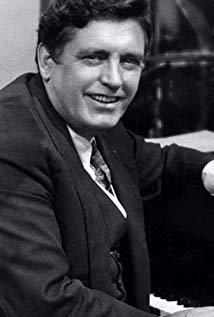
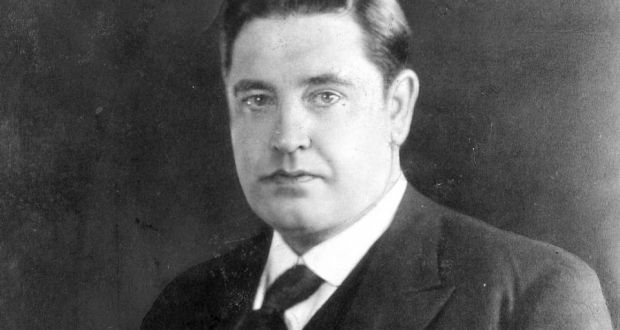
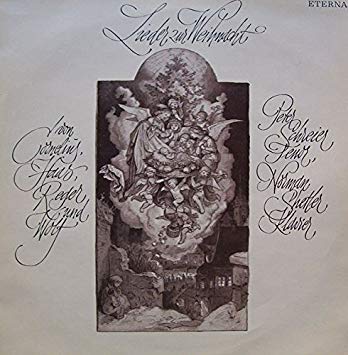
Max Reger: Mariä Wiegenlied (from Schlichte Weisen, Op. 76/52). Peter Schreier, tenor; Norman Shetler, piano. From Lieder zur Weihnacht (Eterna Records 8 27 172 [1979]). After Fritz Wunderlich’s death, Deutsche Grammophon was desperate to find a successor to him. The East German Peter Schreier was pegged for that distinction, getting plugged into several projects that Wunderlich had been slated for. In a way, it was completely unfair to Schreier, whose virtues were completely unlike those of Wunderlich’s: Schreier had, in my opinion, a much more refined and subtle musical sense, while possessing very little of Wunderlich’s innate beauty of tone. As he developed over the years, Schreier’s merit became clearer and clearer, particularly as a singer of Lieder and of the music of Johann Sebastian Bach, both areas of repertoire in which Wunderlich had begun to make a mark, but in which he would most likely have developed even further. Schreier has had the advantage of a long life (he is still with us at the age of 84): his collaboration with Sviatoslav Richter in Winterreise, which comprised a short series of performances, including a live televised performance from the Pushkin Museum in Moscow and a live audio recording from the Semperoper in Dresden, represent the absolute pinnacle of his achievement, and a high point in the performance history of Schubert’s supreme song cycle. This recording of Christmas art songs contains two cycles (the Krippenlieder by the virtually unknown Joseph Haas and the better-known Weihnachtslieder by Peter Cornelius) as well as songs on Christmas themes by Hugo Wolf and Max Reger. So many newly-composed Christmas songs make use of familiar Christmas themes: Johannes Brahms’s Geistliches Wiegenlied makes use of the same song that Reger uses here: Joseph, lieber Joseph mein and in the pop realm, Joni Mitchell’s River makes poignant use of Jingle Bells, as the introduction to Piaf’s Le Noël de la Rue makes use of the famous French carol, Il est né le divin enfant. I adore this song, and I love Schreier’s performance, one which highlights the words but still manages to spin out a beautiful legato line when it’s called for.
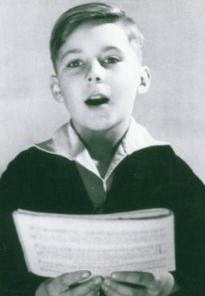
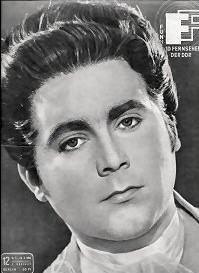
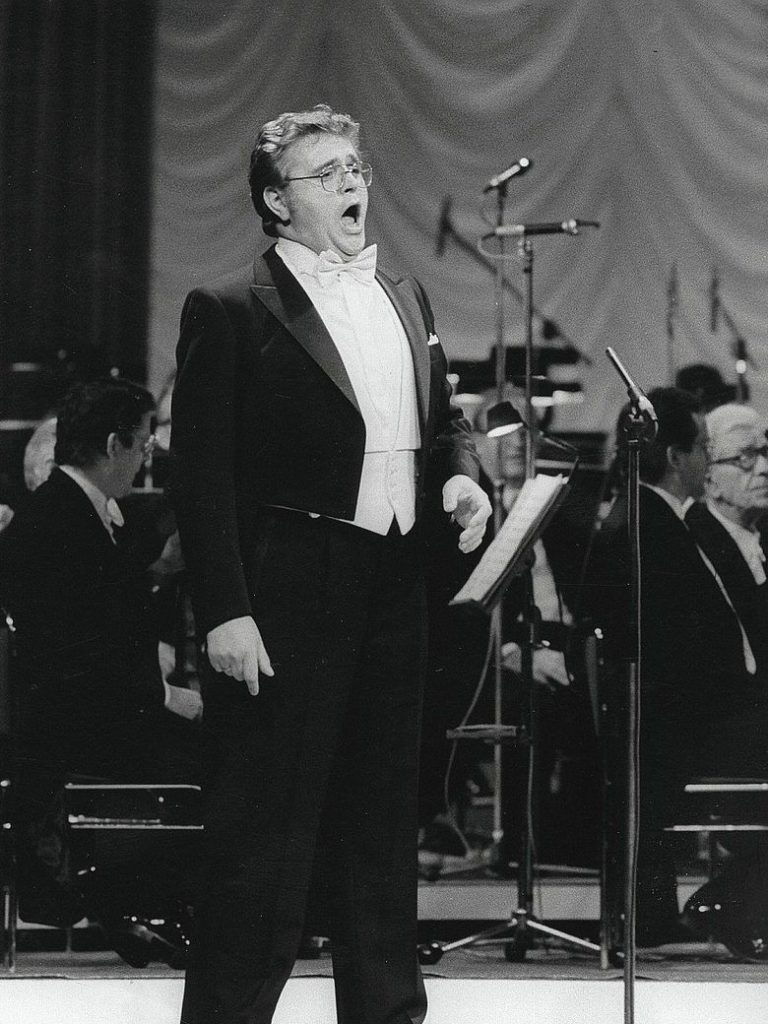
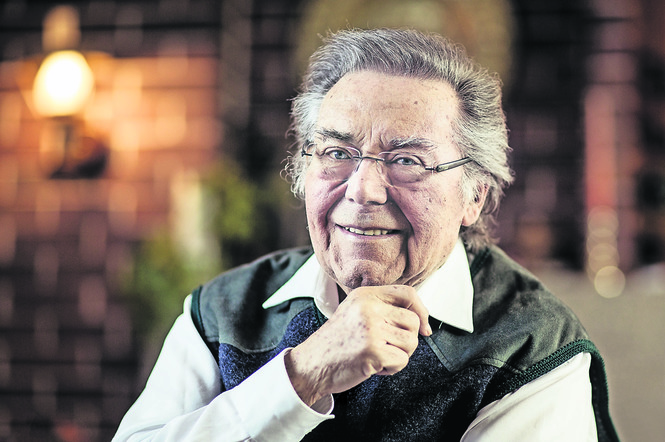
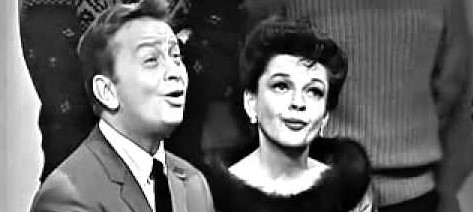
Mel Tormé, Robert Wells. The Christmas Song. Mel Tormé, Judy Garland. From The Judy Garland Show, Episode 12 (first aired 22 December 1963). My not-boyfriend David and I just rewatched the entire Judy Garland Christmas Special, which is sheer delight for anyone who loves Judy. The duet with Mel Tormé (1925-1999) on his famous “Chestnuts Roasting on an Open Fire” (co-written with Robert Wells) is the absolute highlight, even though Judy accidentally calls Mel “Mort” at one point (Mort Lindsey was the music director of the show; Mel Tormé was responsible for all the special musical material). Tormé was known as “The Velvet Fog” for that enveloping and enchanting tenor voice of his. Here are a bunch of photos of him throughout his career, which began with him seated behind a drumset and encompassed appearances on The Carol Burnett Show as well as increasing renown and acclaim as a jazz singer.
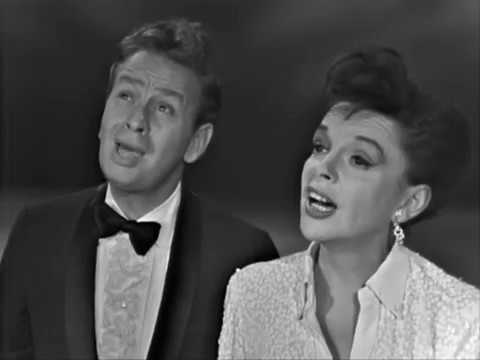
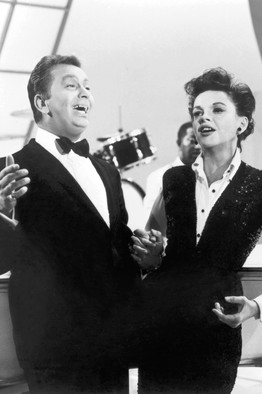
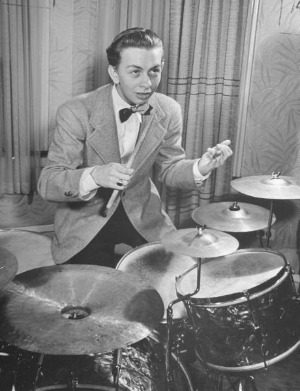
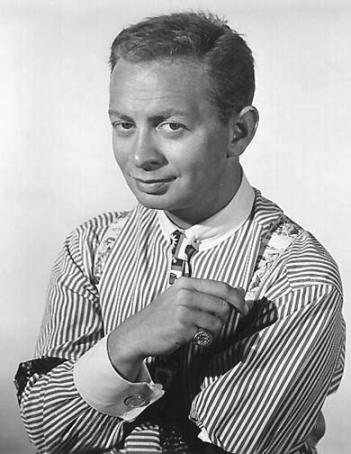
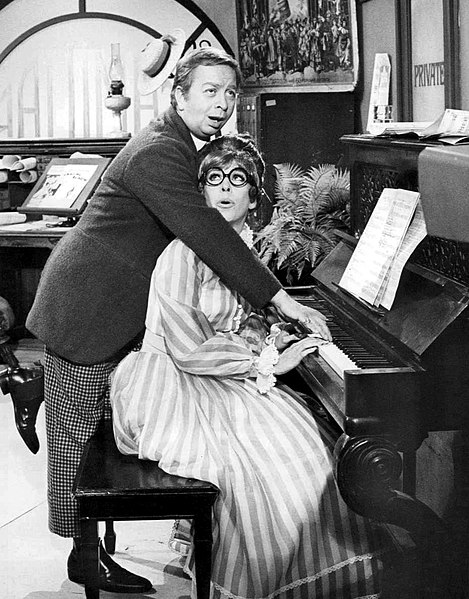
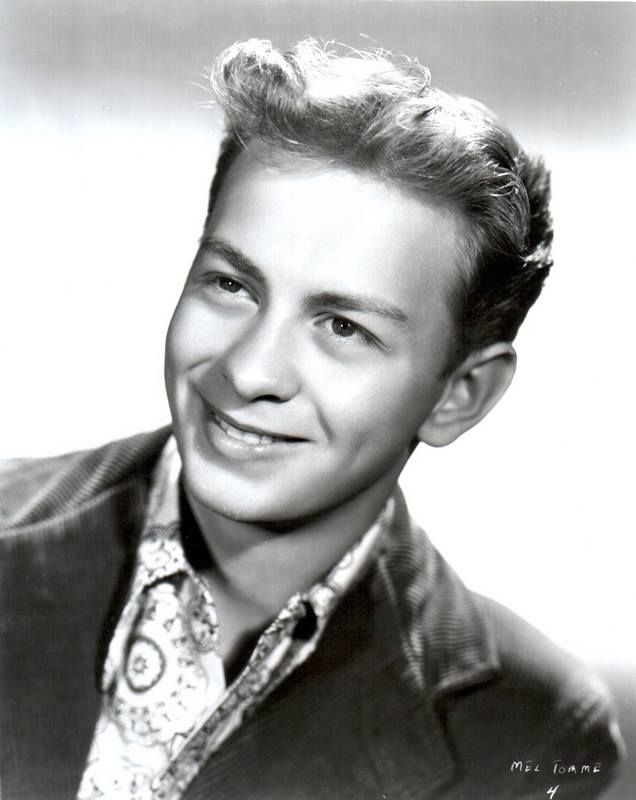
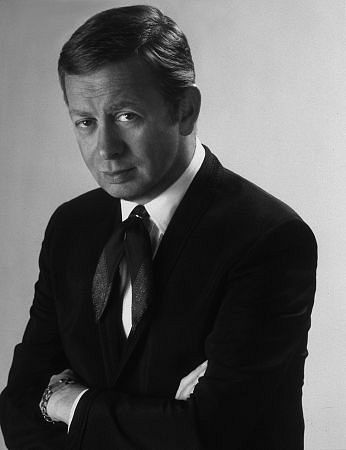

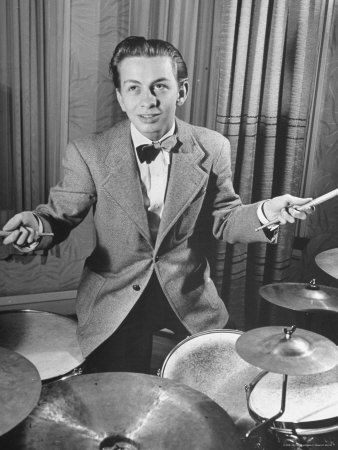
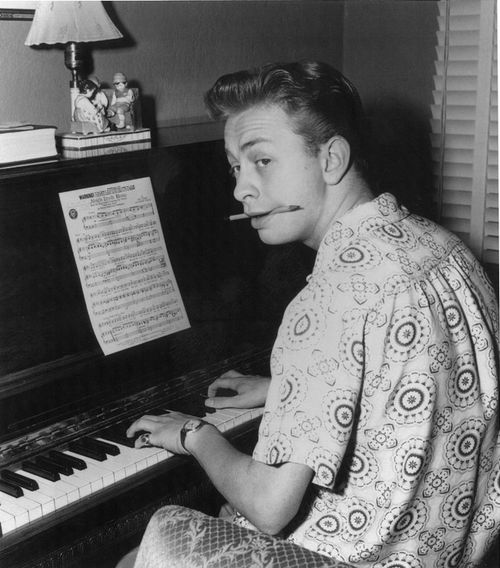
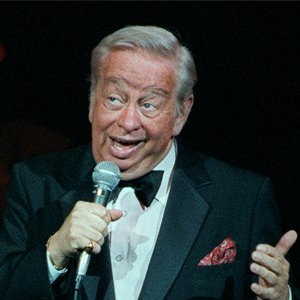
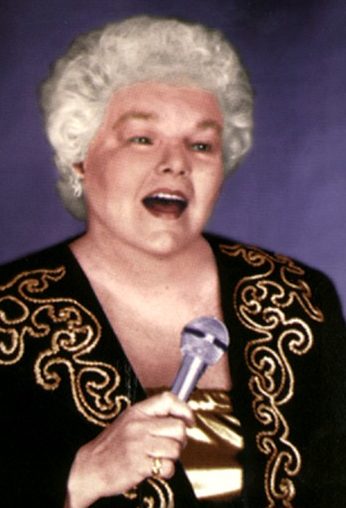
Hugh Martin, Ralph Blane: Have Yourself a Merry Little Christmas (from Meet Me in St. Louis). Eileen Farrell, soprano; Greg Hyslop (guitar), Loonis McGlohon (piano), Dardanelle (vibraphone), Terry Peoples (bass), Phil Thompson (reeds), Bill Stowe (drums). From We Wish You a Merry Christmas: Loonis McGlohon and Friends, Audiophile Records ACD-265 (1990). I went on the record on this episode and named Eileen Farrell the greatest all-around vocalist, as well as the most versatile, that the United States of America has produced. There might be challengers but I can’t think of any right now. From Bach to Berg, from Gluck to Harold Arlen, from Handel to Rodgers and Hammerstein, Eileen Farrell could (and did) sing everything. Her career spanned over forty years: she began as a girl singer on the radio during WWII and in 1993 released her last pop album, which consisted of songs by Harold Arlen. In this 1990 release, she puts a fresh (and fresh-voiced) spin on my favorite sad Christmas song, giving even Judy, who created the song so memorably in Meet Me in St. Louis, a run for the money.
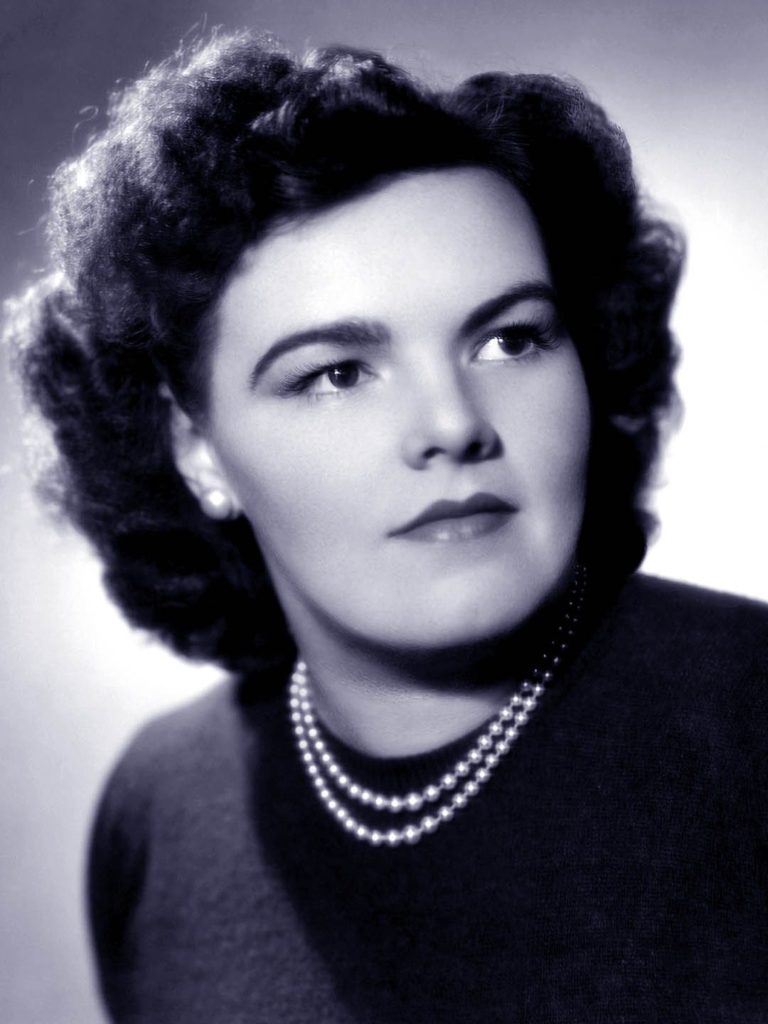
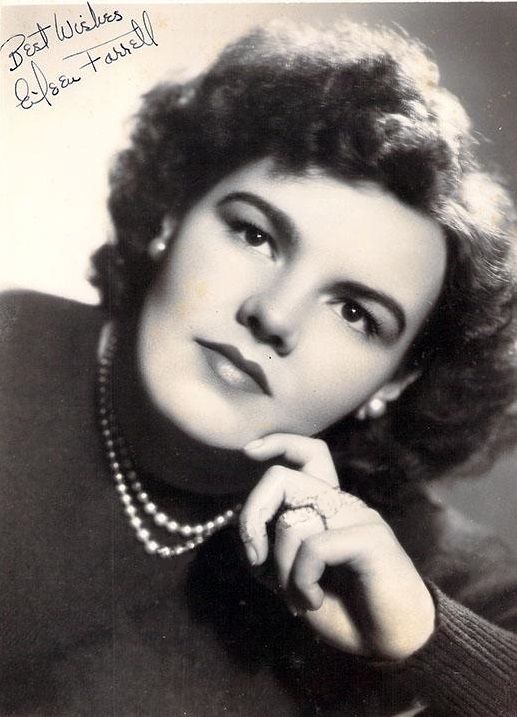
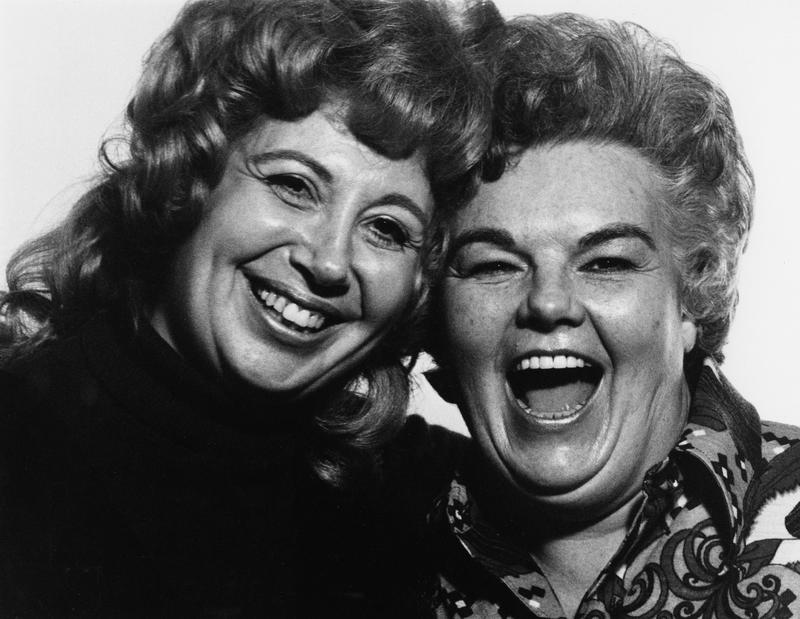
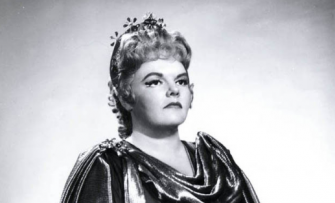
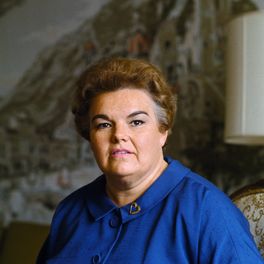
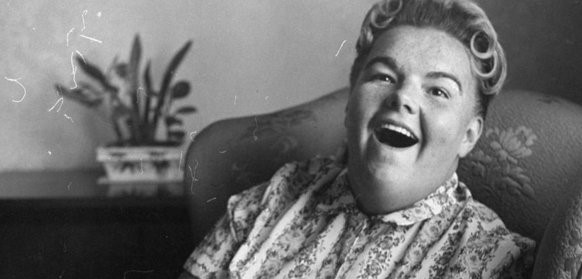
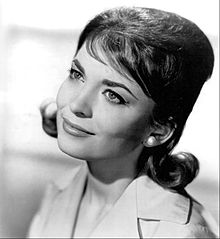

David Shire, Richard Maltby, Jr.: I Don’t Remember Christmas (from Starting Here, Starting Now). Rita Gardner, Alex Rybeck, piano. From Try to Remember: A Look Back at Off-Broadway. This is a live recording of performances given at the Metropolitan Room in September 2011. Rita Gardner is clearly on of those rare singers, like Judy Collins, who only gets better with age. (Here is a clip of the incredibly charming and gracious Rita Gardner receiving a Legends of Off-Broadway Award this past June.) (Another of those ageless singers is Susan Watson, who was in both the original cast of Bye Bye, Birdie and an early revival of The Fantasticks.) I played one of the two pianos in this show when it was performed the fall of my senior year of high school at Oshkosh North High School: it was one of my happiest memories from that period in my life. As for the song Rita Gardner sings here, it is from the Maltby & Shire review Starting Here, Starting Now. (BTW, here is a recent interview with the two of them.) My friend Jerry Hadley sang a memorable version of this song on his In the Real World CD, but somehow it seemed a bit morbid to include his version on the podcast. A fun fact to know and tell is that Richard Maltby was born in Ripon, WI, home to the school where I got my undergraduate degree in music! And David Shire played in the pit in the original production of The Fantasticks! Both of these men have had active and varied careers in music, but I must confess that this song represents to me their pinnacle!
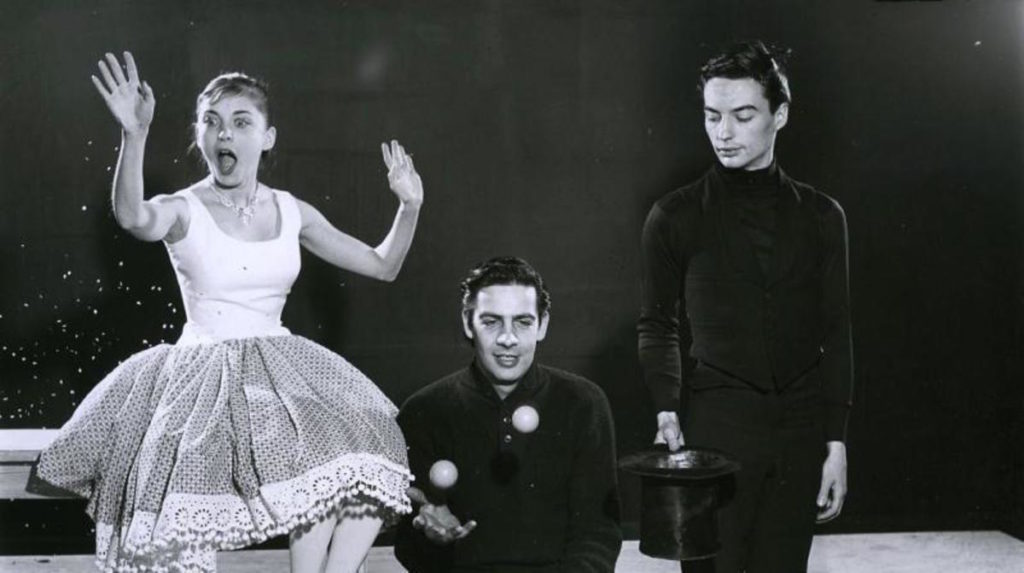
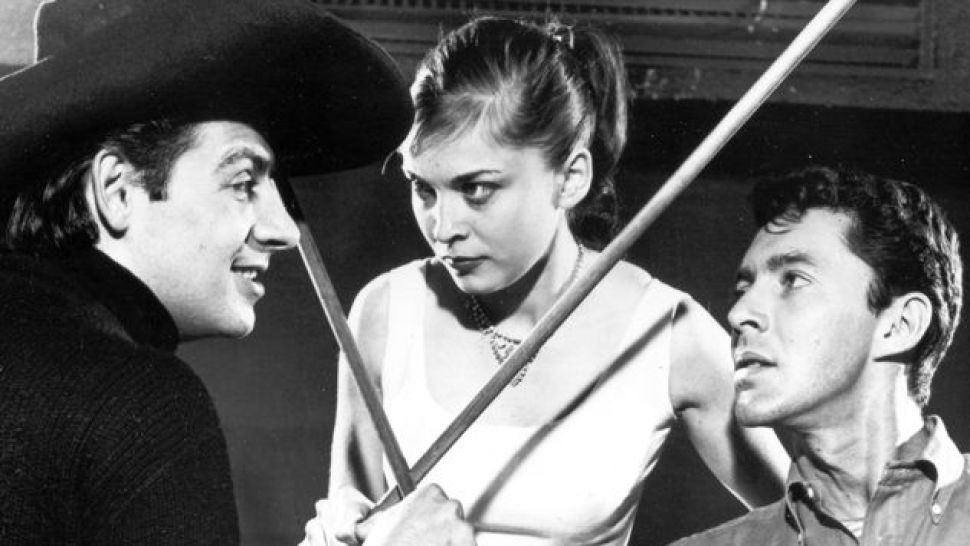
Rita Gardner as Luisa (The Girl), Kenneth Nelson as Matt (The Boy), and Jerry Orbach as El Gallo.
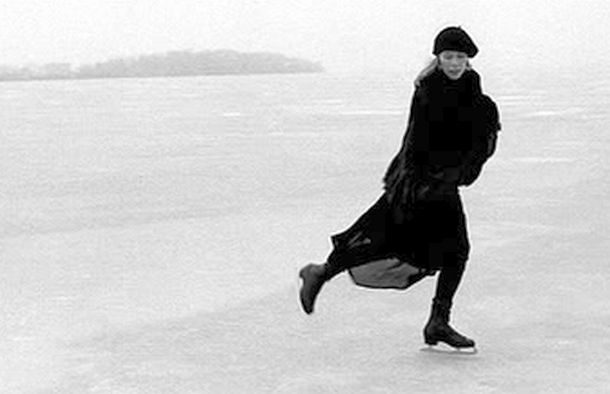
Joni Mitchell: River. From Blue (Reprise Records MS 2038 [1971]). I have already said on the podcast what I have to say about this song, this album, and this artist. I will only add that my friends Chip and Peggy introduced me to both Joni Mitchell and this album when they would sit together in the music lounge outside the practice rooms at Ripon College and sing Little Green and My Old Man and California, as well as this song, accompanying each other on the guitar. At that point, Blue wasn’t even ten years old! I will cherish these memories until the day I die.
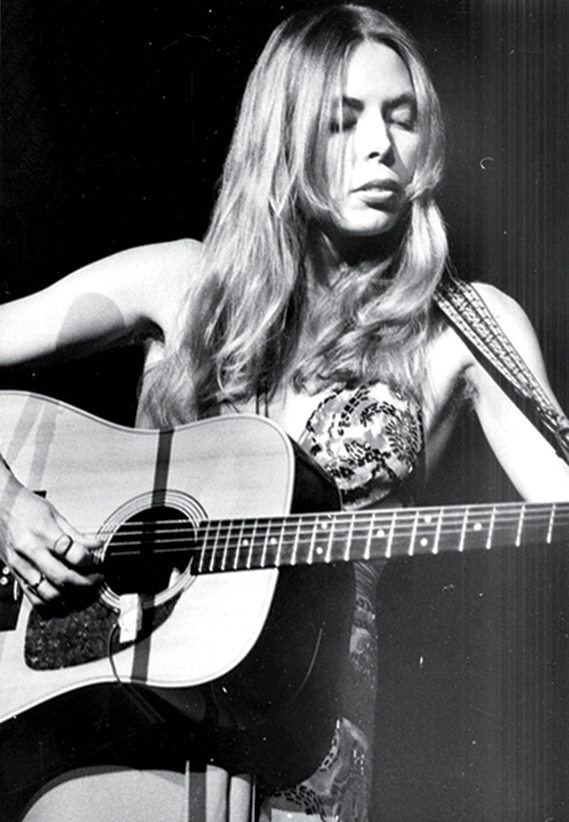
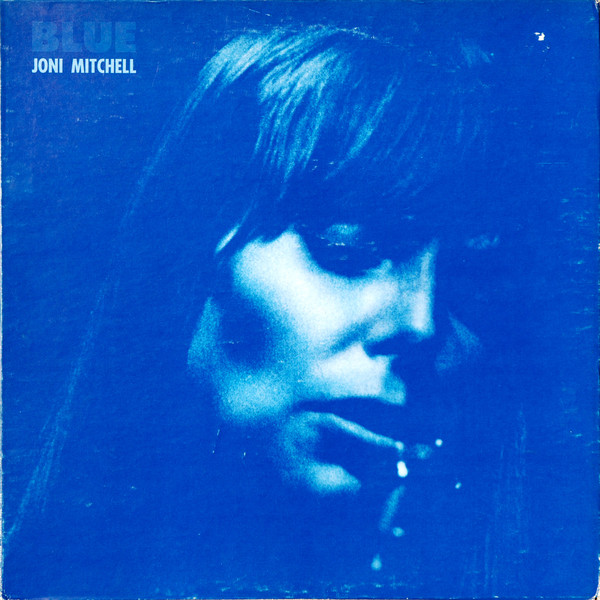
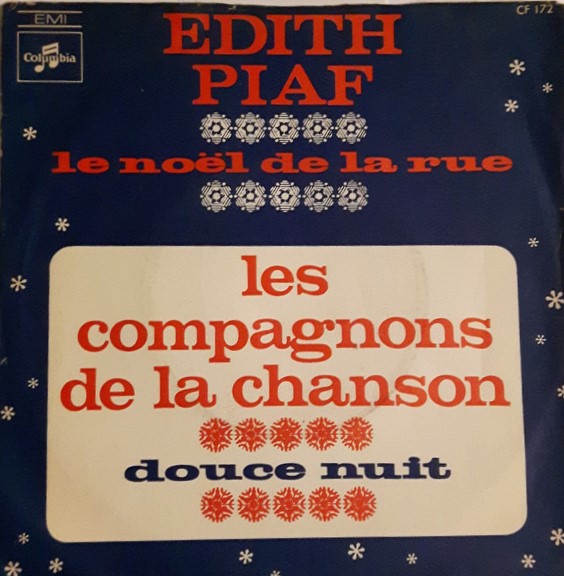
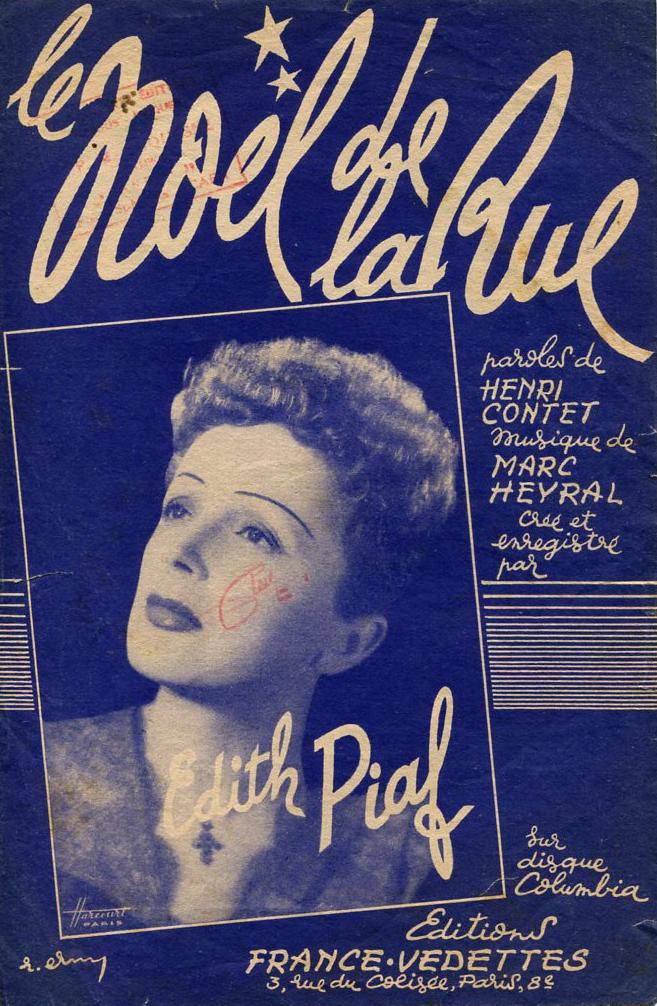
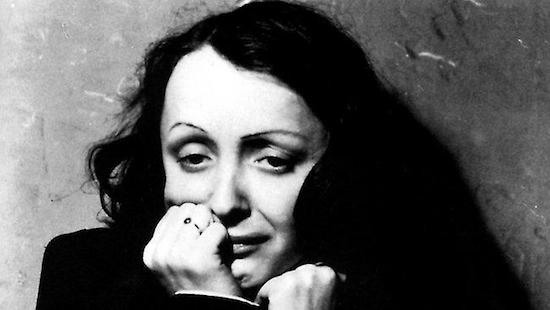
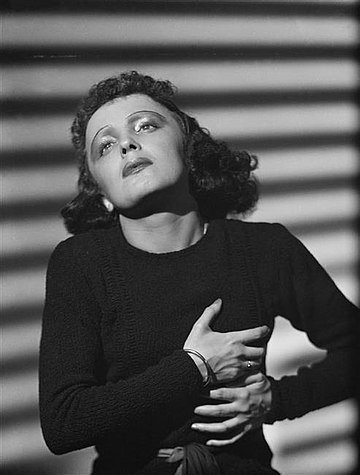
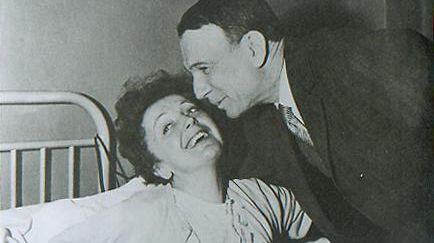
Marc Heyral, Henri Contet: Le Noël de la Rue. Edith Piaf with Robert Chauvigny conducting an orchestra and Les Choeurs R.Saint-Paul. Columbia BF 464 (1951). As mentioned above, the introduction to this song makes use of the familiar French carol I Il est né le divin enfant. The song was composed by Marc Heyral (born Marius Herschkovitch, 1920-1989) with words by Henri Contet (1904-1998). Though neither were among Piaf’s most important collaborators, they were responsible for such memorable moments as Padam Padam (for which Contet wrote the lyrics) and L’effet que tu me fais (for which Heyral wrote the music). This song is one of Piaf’s most poignant and intense, evoking as it does the grim life of homeless children on the street and contrasting it with the comfortable indoor Christmas of the children of the bourgeoisie.
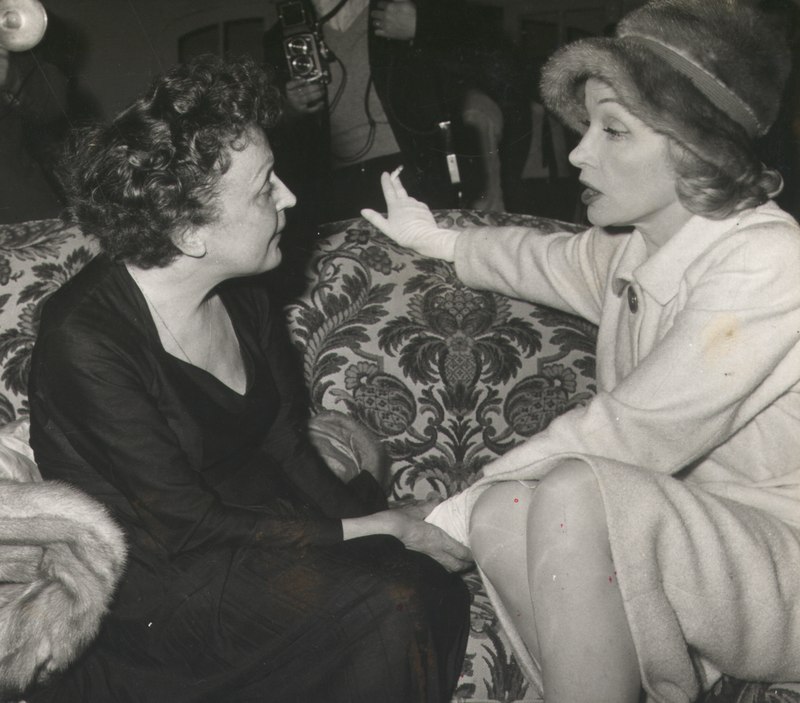
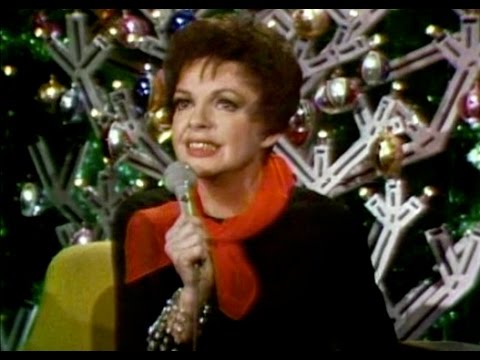
John Meyer: After the Holidays. Judy Garland. Performed live on The Tonight Show on 17 December 1968. John Meyer was evidently a romantic partner of Judy Garland’s right before her final husband Mickey Deans came on the scene. He was a pianist and vocal coach who has written a memoir about his time spent with Judy and has just in the past few days had interviews posted on several popular outlets about her. He wrote several songs for her in particular, this one, I’d Like to Hate Myself in the Morning and It’s All For You. You can see on the interview portion of her final appearance on The Tonight Show just how fucked up she was: she can barely relate a simple story. But Johnny Carson hands her the mic and she is transformed into the supreme professional that she always was, capable of evoking heartbreak by the most economical and sincerest of means.

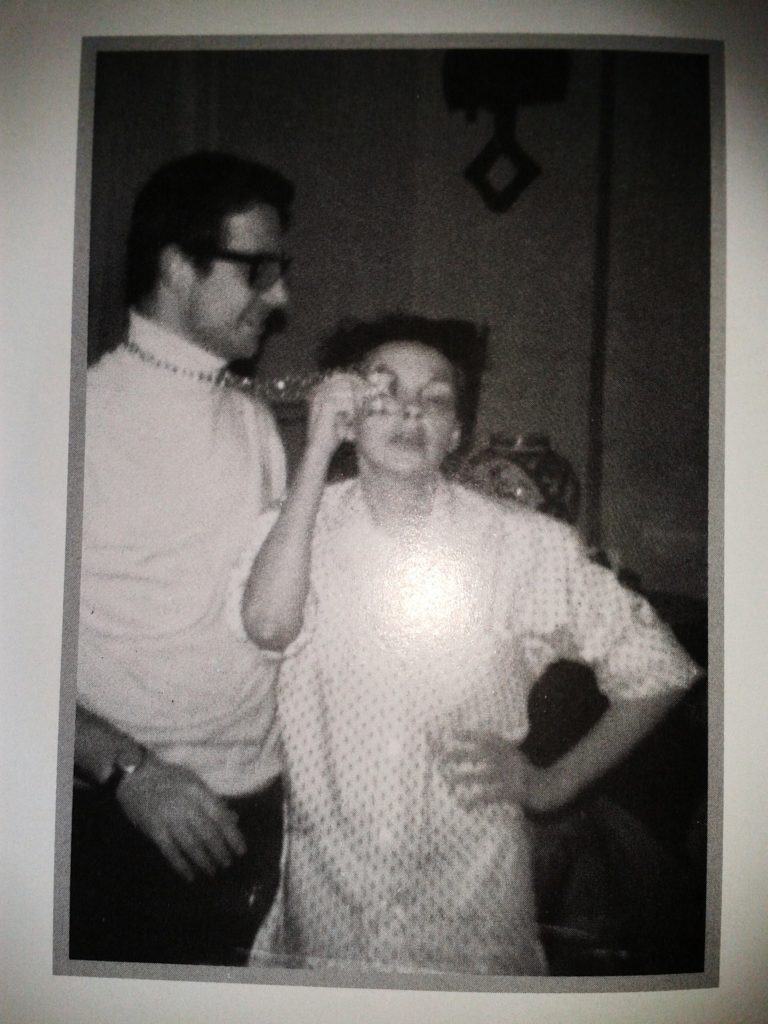
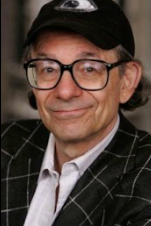
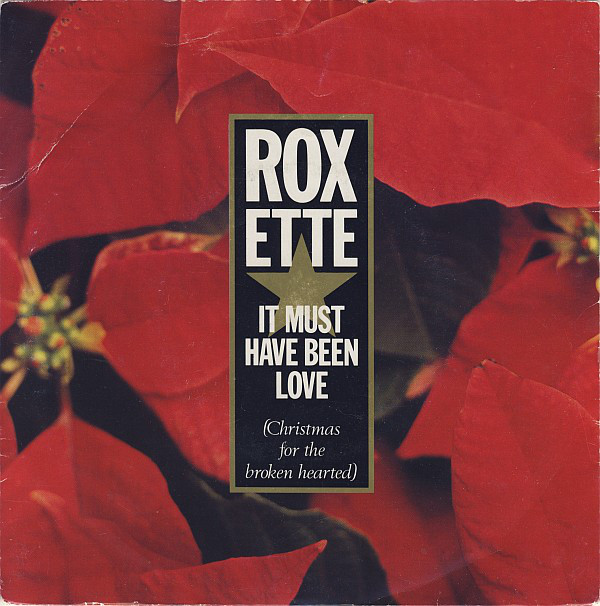
Per Gessle: Christmas for the Brokenhearted [It Must Have Been Love]. Roxette (Marie Frederiksson and Per Gessle). EMI Single 1362887. Originally released in this version in 1987; re-recorded and re-released as It Must Have Been Love. Used in that version in the film Pretty Woman, it became a world-wide sensation. This is in memory of Marie Fredriksson who died on 9 December after a series of health issues which had plagued her since 2002. As I said on the podcast, I LOVE these depressing power ballads. To those who don’t, please fast-forward! But do give a nod to this powerhouse vocalist who gave voice to the words and music.

Per Gessle (Roxette)


Per Gessle (Roxette)
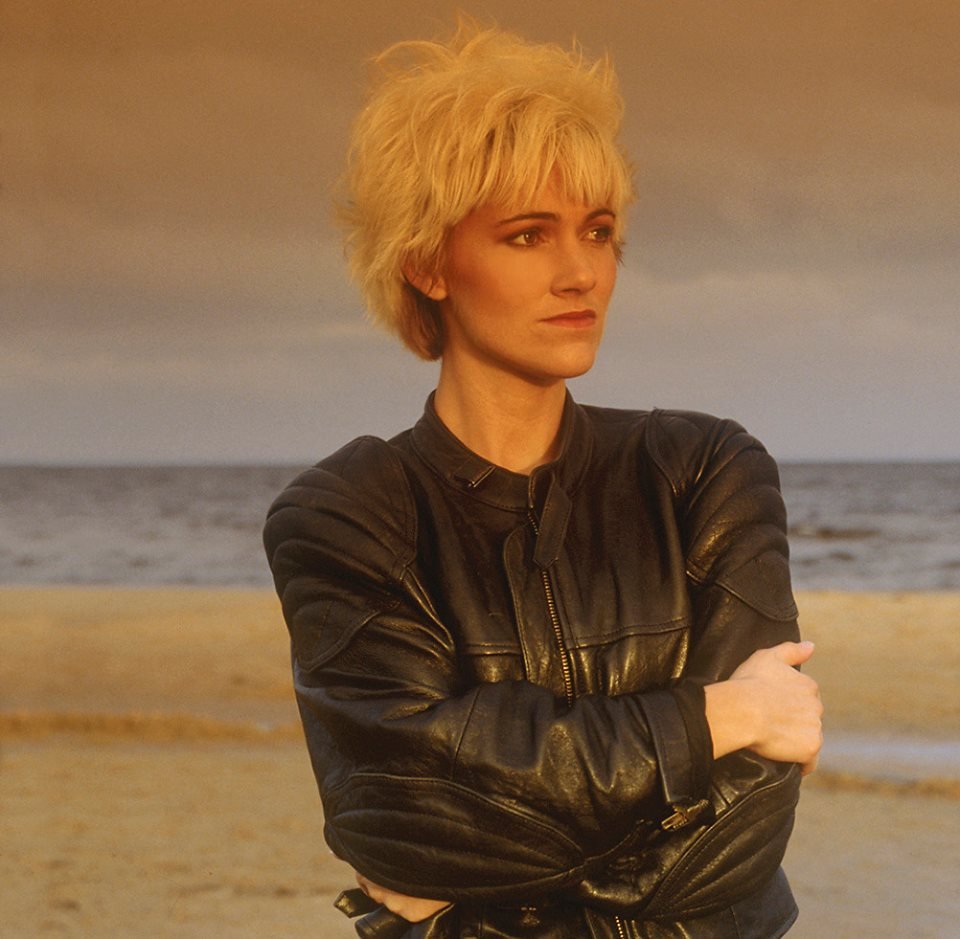
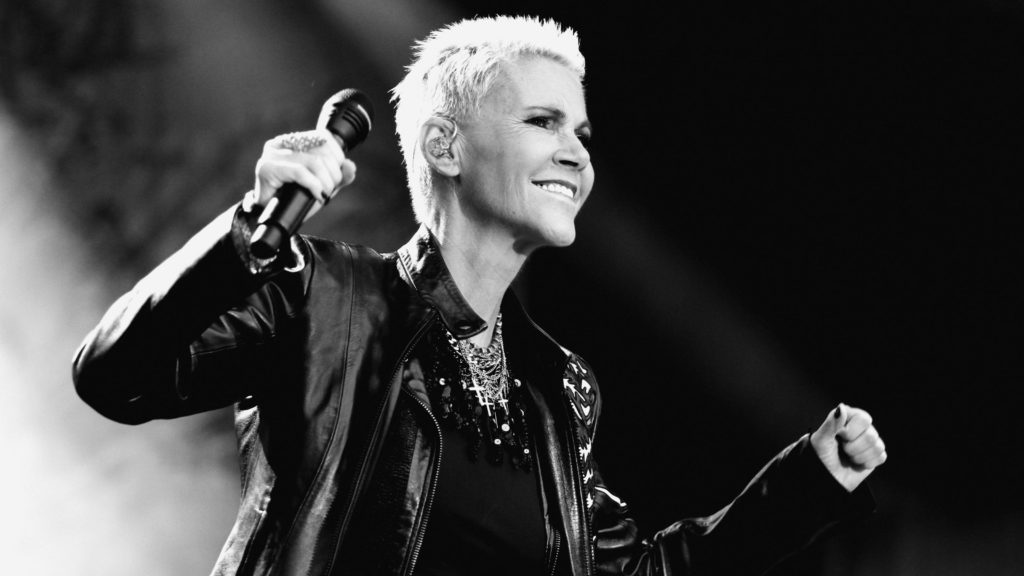
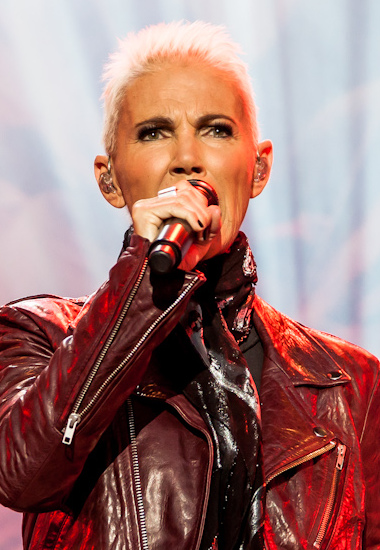
Traditional German Carol, Johannes Daniel Falk: O du fröhliche. Lotte Lehmann, soprano; Hermann Weigert conducting members of the Staatskapelle Berlin. Odeon O-8410 (1928). This, along with Claudia Muzio’s Italian version of Max Reger’s Mariä Wiegenlied (called La ninna nanna della Vergine) and Leontyne’s version of O Holy Night, is one of my three favorite Christmas recording. Though I don’t believe she was a particularly religious woman, the fervor, warmth, and generosity of Lehmann’s artistry comes through like the Christmas star shining through the darkness.
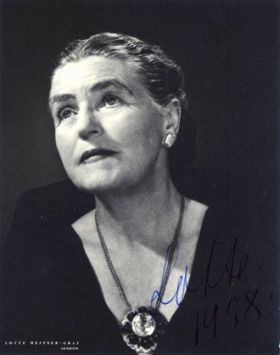

1 thought on “Episode 14. Christmas Potpourri II”